23 things you need to know before going to Sri Lanka

Oct 14, 2023 • 11 min read
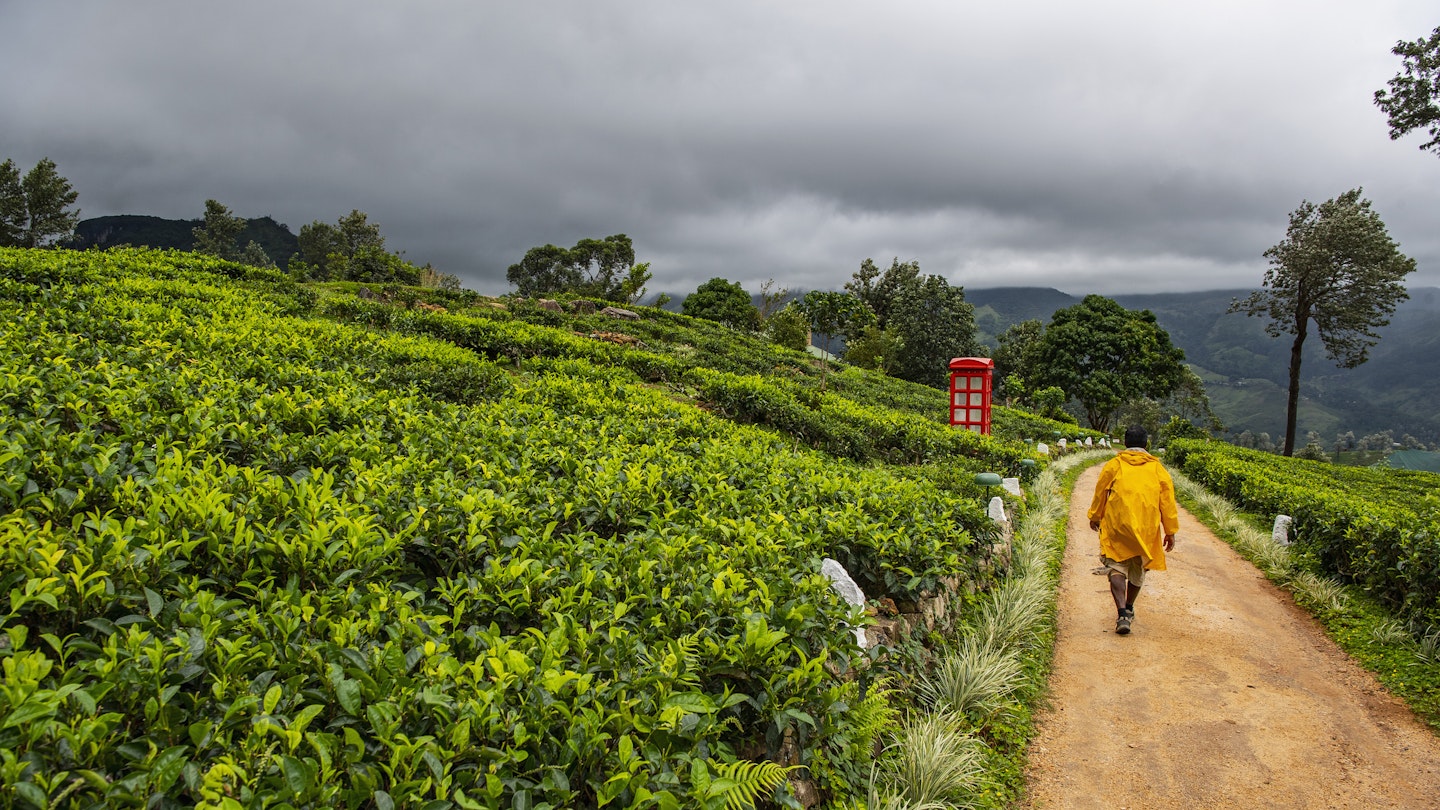
Get to grips with Sri Lanka's complex culture with these top tips on health, safety and etiquette © Cavan Images / Getty Images
Floating in tropical waters off the southern tip of India, Sri Lanka is defined by its gentle Buddhist culture, friendly people and laid-back way of life despite its troubled recent history.
A little knowledge goes a long way when it comes to having an easy trip to this Indian Ocean island. For such a small nation, Sri Lanka is hugely diverse. Surf-pounded coastlines rise to forested national parks , temple-studded plains and jungle-covered highlands - with the added perk that nowhere is that far from a beach .
Most visitors start on the coast and duck inland to tea gardens, ancient cities and national parks, but navigating Sri Lanka 's frenetic public transport system and cultural sensitivities can be confusing for new arrivals. To help you out, here are some of the things you need to know before traveling to Sri Lanka.

1. Apply for a visa in advance
As a first step, check the latest visa requirements for Sri Lanka. Most nationalities need an Electronic Travel Authorization (ETA) in advance of travel, but fortunately, they're not hard to get.
2. Check your travel vaccinations
Sri Lanka is a tropical destination, so check with your doctor to make sure you're up to date with your travel vaccinations. Recommended vaccinations for Sri Lanka include diphtheria, tetanus, hepatitis A, hepatitis B and polio. Long stayers might also consider getting vaccinated against typhoid and rabies (although rare, rabies can be fatal, and it's carried by dogs, cats and monkeys in Sri Lanka).
3. Plan your trip according to the monsoons
Between May and September , the south coast and west coast of Sri Lanka are lashed by the southwest monsoon, which brings plenty of rainfall and choppy seas, while northern and eastern parts of the island are fine and dry. When the northeast monsoon hits Sri Lanka between November and March, the south and west are at their best, and it's the northern and eastern parts of Sri Lanka that see the showers.
In fact, monsoon rainfall in Sri Lanka is quite sporadic – expect short, sharp downpours interspersed with long, hot sunny spells. Traveling to different parts of Sri Lanka during their rainy "off-seasons" has its rewards – visitor numbers fall and hotel rates drop quite significantly.
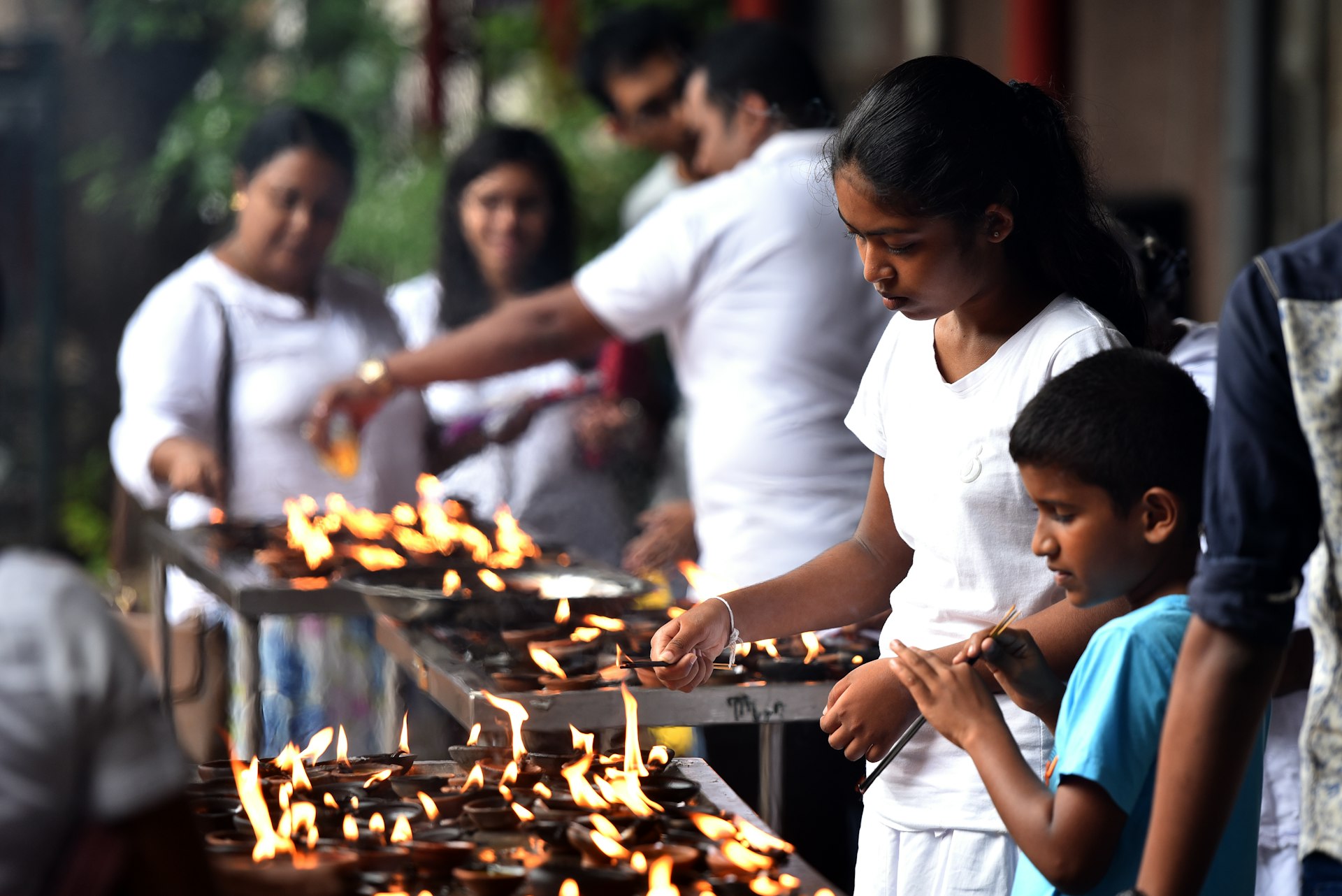
4. There's no alcohol for sale on full moon days and religious events
Sri Lanka has a huge number of bank holidays, and almost half of these are poya days, marking the arrival of the full moon, an auspicious event in Sri Lankan Buddhism. All poya days are dry days – alcohol is not sold in shops, restaurants or bars (though you can still access your hotel room’s minibar). The ban on alcohol also extends to other religious events such as the Buddhist festival of Vesak in May.
5. Carry cash: the currency is the Sri Lankan rupee
Stock up on rupees on arrival in Sri Lanka, not before, and don't change more than you need. Sri Lankan rupees are hard to exchange outside of Sri Lanka. ATMs are widespread all over the country – stick to Bank of Ceylon ATMs where possible as they don't charge a fee. Card machines are common in larger hotels, restaurants and tourist-oriented shops.
Try to build up a stash of lower denomination notes wherever possible (for example, withdraw LKR5900 rather than LKR6000). You'll need small bills to pay for tuk-tuks and buy things from local shops and markets and for tipping. Carrying some cash in dollars, euros or pounds sterling is also useful – all are widely accepted in tourist areas.
6. Be realistic about how much ground you can cover
It takes a surprising amount of time to travel around Sri Lanka thanks to winding routes and the limited number of roads crossing the interior of the island. Traffic also has to navigate a variety of hazards including badly surfaced roads and roaming wildlife (buffaloes, cows, feral dogs and even elephants). To do the island justice, don’t rush. You’ll need at least a month for a circuit of the island with detours to national parks, ancient cities and tea plantations inland.
Thanks to Sri Lanka’s improving expressway network, road travel from Colombo to southern towns such as Galle , Matara and Tangalla is fairly rapid. With its twisting, congested roads, the Hill Country is the most time-consuming region to navigate (consider taking trains to explore instead).
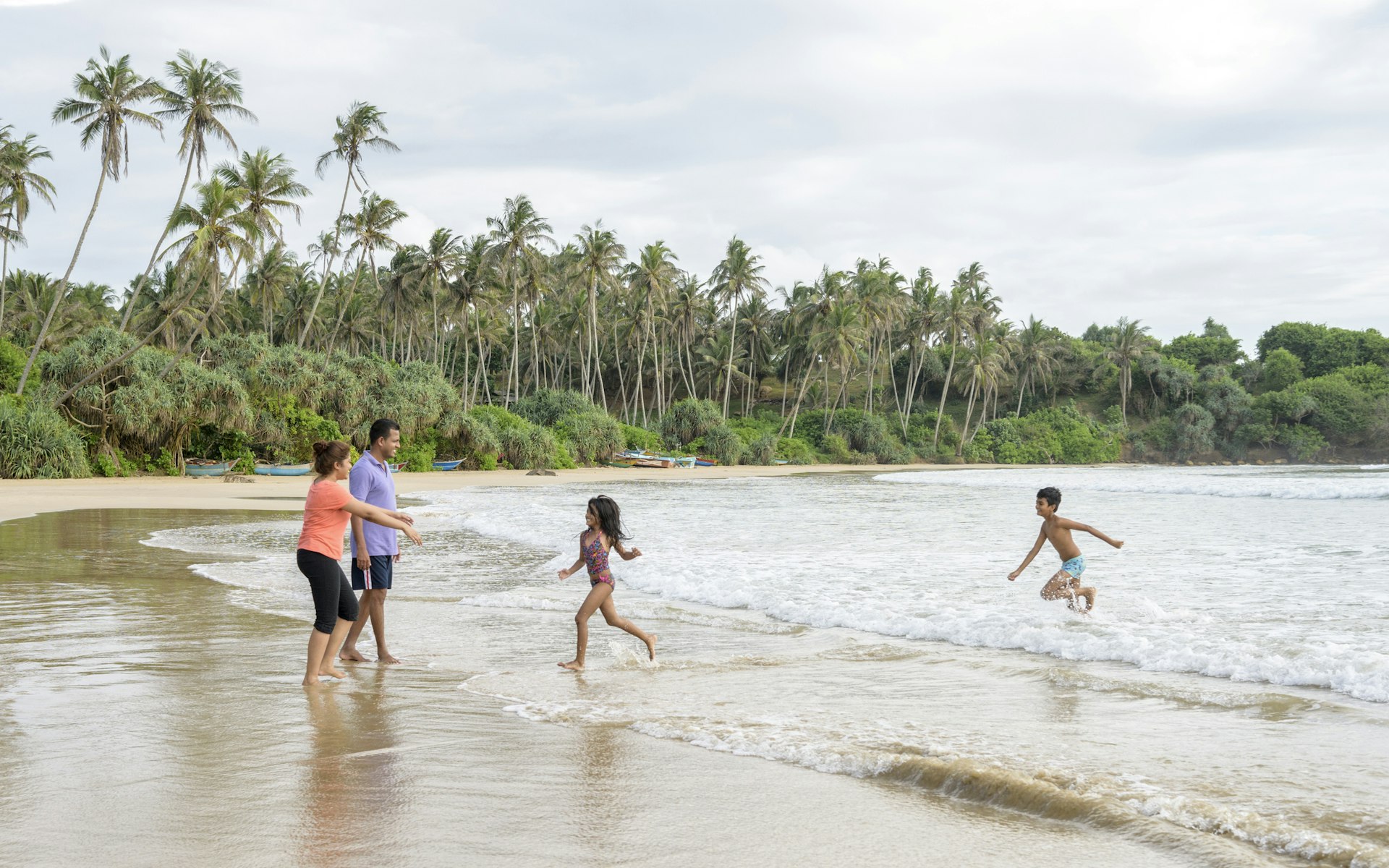
7. Pack the right gear for Sri Lanka’s hills and religious sites
Sri Lanka’s mountains reach elevations of over 2,000m (6,560ft) and temperatures are lower in the highlands than on the coast. Pack a light jumper for cooler nights and early morning starts (particularly between December and March). Also bring a sarong – you can use it as a beach blanket or towel, as a shawl or skirt to cover your shoulders or knees when visiting temples, and as a warm layer when traveling on air-conditioned buses or for pre-dawn safari jeep drives.
8. Plan ahead for the hill country trains
Sri Lanka Railways runs the nation's trains, including services on the spectacular Main Line, which slices east from Colombo through the island’s highest mountains, cloud forests and tea estates. It’s a stunning journey and hugely popular with tourists and locals alike, particularly the section between Kandy and Ella .
Book tickets in air-conditioned first class or fan-cooled second class well ahead to guarantee a seat, either in person at stations or online via booking sights such as 12GoAsia . Tickets are released 10 days prior and sell out quickly.
9. Swimwear is for the beach only
For the most part, Sri Lankans are socially conservative and deeply religious. Swimwear is fine for the beach, but not when wandering about town. Going nude or topless is not permitted on any Sri Lankan beaches.
10. Avoid public affection and disruptive behavior
Public displays of affection are frowned on, as is loud or brash behavior, and losing your temper in public (keep this in mind when haggling – this should never be an angry process).

11. Dress respectfully when visiting temples
When making trips to religious sites, wear clothing that covers the legs and upper arms and shoulders. Remove your shoes and headwear before entering any Buddhist or Hindu temple or mosque, even if the site is a historic ruin. Socks are allowed (and you'll need them on scorching hot sunny days).
Tourists are less common in Jaffna and the north where a distinct Sri Lankan Tamil Hindu culture predominates. Respect local etiquette when visiting Hindu temples – ask for permission before entering as non-Hindus are barred from entering some shrines. Some temples also require men to remove shirts and enter bare-chested (for example, Jaffna’s vast Nallur Kandaswamy Kovil ).
12. Show respect to Buddha images
Sri Lankan Buddhists take depictions of the Buddha very seriously and these should always be treated with respect. People have been deported from Sri Lanka for displaying "disrespectful" Buddha images, so avoid wearing clothing with Buddha images and if you have tattoos of Buddhist iconography, keep these covered. The same rules apply to statues – posing for selfies with a Buddha statue is a definite no-no, as is turning your back toward a Buddha image.
13. Be considerate when taking photographs
When photographing people, always ask for permission first. Note that if you photograph the famous stilt fishers at Koggala, you may be asked for payment (genuine stilt fishers are a rare breed nowadays). Flash photography isn’t allowed in temples (nor in the vicinity of military sites) and taking photos may be banned entirely at some Hindu sites. If you are photographing temples, be careful not to stand with your back toward a Buddha statue while you are snapping.
14. Use your right hand to eat
Traditionally, Sri Lankans eat with their right hand, using the tips of their fingers to mix rice and curry into little balls, and their thumb to gently push the food into their mouths. You may be encouraged to try this if you are invited into a local home for a meal, but always wash your hands first for hygiene reasons. Avoid eating (or shaking hands) with your left hand as it is used for less sanitary tasks such as personal ablutions.
15. Tipping is customary
Tipping is a way of life in Sri Lanka and many restaurant workers rely on the extra income this practice brings. Most larger hotels and restaurants add a 10% tip as standard; use this as a guide for how much to tip in places that don’t.

16. Give wildlife space
In 2017, a British journalist died after being snatched by a crocodile at a lagoon near Arugam Bay . Such attacks are rare, but they happen so be vigilant in rivers and lagoons. Dangerous sharks are not a problem in Sri Lanka, but poisonous snakes are found in waterlogged areas on land such as paddy fields.
Keep a keen lookout for elephants on roads leading to national parks or when walking or driving in the hills. If you see one, keep your distance and be ready to back away. Never feed a wild elephant – this habituates elephants to associate humans with food and act aggressively.
17. Take standard safety precautions
Sri Lanka is one of the safest countries in Asia when it comes to petty crime. Violence against tourists is very rare, and theft and robberies are uncommon, though they do happen occasionally. As a precaution, wear a money belt and use your hotel safe.
Female travelers should avoid traveling alone at night, particularly on public transport, and take care walking alone on empty beaches. Given Sri Lanka’s conservative culture, long sleeves and dresses are culturally appropriate and will reduce the chance of being harassed.
18. Do not drink the tap water
Sri Lanka's tap water could theoretically be used for brushing your teeth but we don't recommend it, and it's certainly not safe for drinking. Bottled water is plentiful and better hotels provide clean drinking water for guests. If you do buy bottled water, check that the seal is intact and look for the Sri Lanka standards certification mark. Always dispose of empty bottles responsibly – filling your own drinking water bottle from a large bottle is better than buying lots of small plastic bottles.
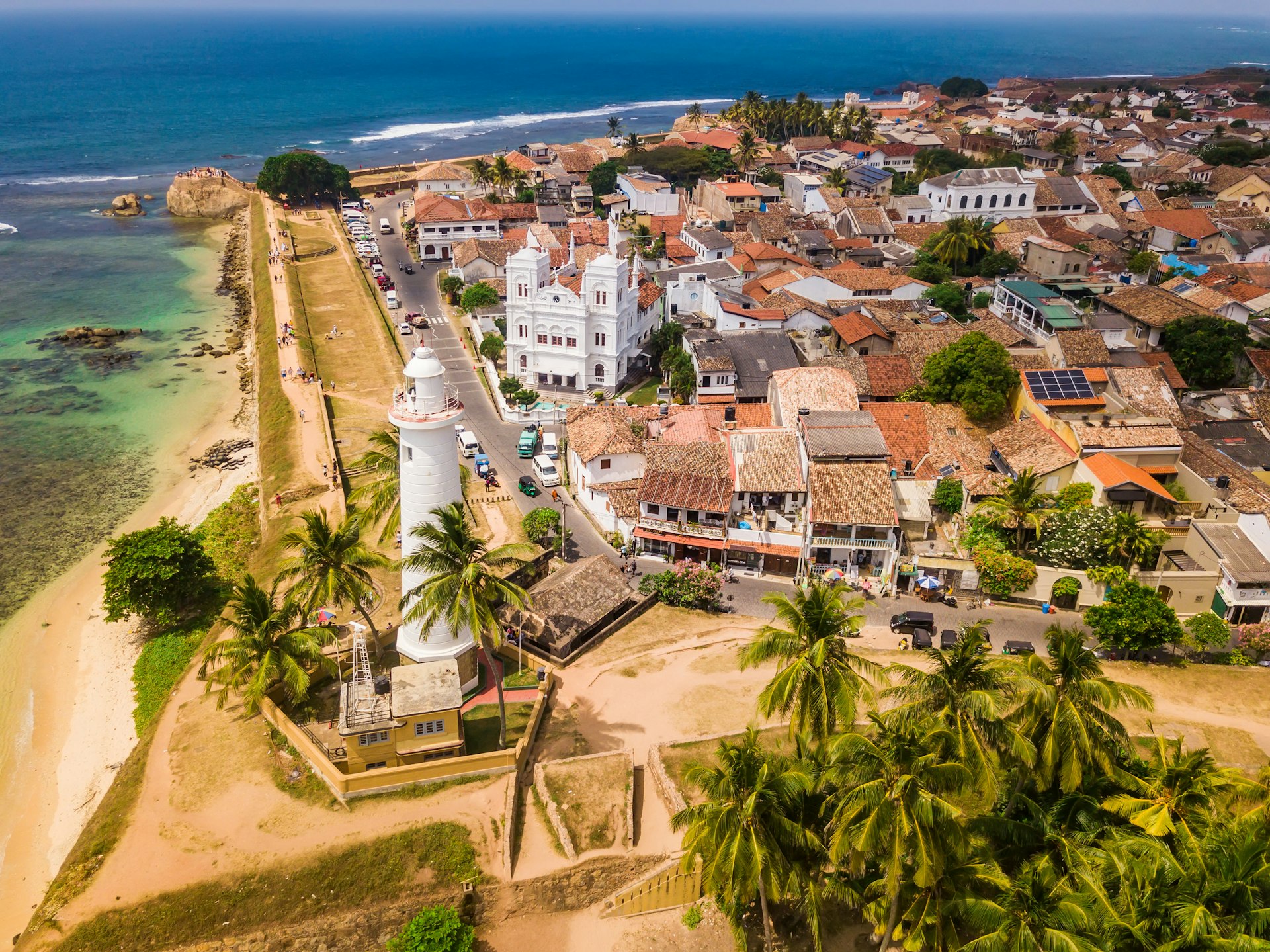
19. Beware of scams and pickpockets
Scammers are active in Galle Fort , Kandy and Colombo’s Galle Face Green , looking for tourists to cheat or charm out of money. Never buy gems hawked on the street – they will almost certainly be convincing fakes made from colored glass – and be dubious of any shop trying to sell you gems to "sell at a profit back home." Seek out information from official tourist offices and directly from operators rather than trusting agents, particularly if they seek you out first.
Keep your money and valuables out of sight when on busy trains and buses, and when exploring crowded areas streets such as Colombo’s Pettah market district . Tuk-tuks have a habit of overcharging tourists – ask drivers to use the meter (and take another tuk-tuk if they refuse), or order a ride via Uber or local app, PickMe .
20. Protect yourself against mosquitoes
Mosquito bites are one of the biggest health concerns in Sri Lanka. Although malaria has been eliminated, mosquitoes can carry debilitating dengue fever, a painful illness that can have serious side effects. No vaccinations are available for dengue and treatment can only reduce symptoms. Protect yourself by covering up at dawn and dusk, sleeping under a mosquito net and wearing strong repellent containing high levels of DEET ( diethyltoluamide ).
21. Be road-safe in Sri Lanka
Traffic is one of the biggest dangers facing visitors to Sri Lanka. Accidents involving motorcycles and lorries are common, and bus collisions – often involving pedestrians – are also a problem. Common causes of accidents include dangerous overtaking, overloading and pulling in suddenly to pick up passengers on the roadside.
Private bus company drivers tend to drive more recklessly than their government-run, SLTB counterparts. Don’t expect vehicles to stop at pedestrian crossings and keep your wits about you when walking beside any roads (sidewalks are rare in Sri Lanka).

22. Never underestimate the ocean
Sri Lanka's beaches may be idyllic, but there are few lifeguards and strong currents are a danger (particularly during the monsoon seasons). Many beaches shelve steeply and drowning is the second most common cause of death among tourists after road accidents. Seek local advice before swimming in unfamiliar water.
23. Natural disasters are a risk
Sri Lanka was one of the countries worst affected by the 2004 Indian Ocean tsunami, which swept away more than 35,000 people and devastated many coastal areas. Following the disaster, early warning systems have been put in place in major towns and resorts, but not in rural, isolated areas, so be alert to signs of earthquakes and tsunamis.
The most common natural disaster in Sri Lanka is localized flooding during the southwest and northeast monsoons, which can cause landslides in highland areas. Sri Lanka is also vulnerable to tropical cyclones and periods of drought. For up-to-date weather warnings and situation reports, bookmark the country’s Disaster Management Center website .
This article was first published March 2022 and updated October 2023
Explore related stories
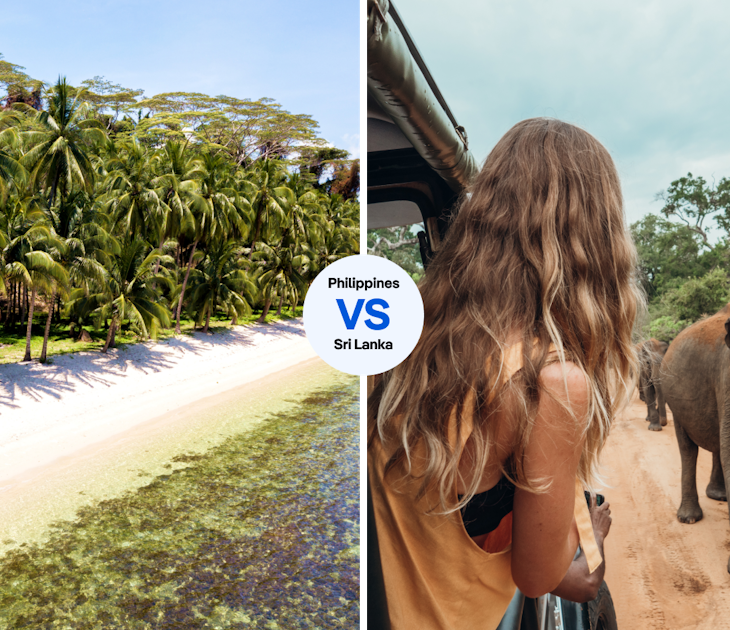
Feb 14, 2024 • 8 min read
We asked a pair of passionate writers to make the case for two of Asia’s most fabulous destinations.

Nov 9, 2023 • 9 min read

Nov 7, 2023 • 8 min read
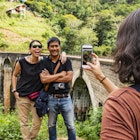
Oct 29, 2023 • 6 min read

Oct 15, 2023 • 3 min read

Jun 2, 2023 • 8 min read

May 26, 2022 • 18 min read

Jan 2, 2024 • 11 min read
Nov 4, 2023 • 6 min read
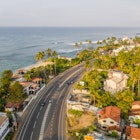
Oct 16, 2023 • 8 min read
This website uses cookies to ensure you get the best experience on our website. Learn more

Information on how to stay safe and healthy abroad. About us.
- Destinations
- Asia (East)
- Asia (Central)
- Australasia & Pacific
- Central America
- Europe & Russia
- Middle East
- North America
- South America & Antarctica
Sri Lanka (Asia)
Advice for all destinations.
Read the information on the COVID-19: Health Considerations for Travel page for advice on travelling during the COVID-19 pandemic.
Vaccinations and malaria risk
Review both the Vaccination and Malaria sections on this page to find out if you may need vaccines and/or a malaria risk assessment before you travel to this country.
If you think you require vaccines and/or malaria risk assessment, you should make an appointment with a travel health professional:
- How to make an appointment with a travel health professional
A travel health risk assessment is also advisable for some people, even when vaccines or malaria tablets are not required.
- Do I need a travel health risk assessment?
Risk prevention advice
Many of the health risks experienced by travellers cannot be prevented by vaccines and other measures need to be taken.
Always make sure you understand the wider risks at your destination and take precautions, including:
- food and water safety
- accident prevention
- avoiding insect bites
- preventing and treating animal bites
- respiratory hygiene
- hand hygiene
Our advice section gives detailed information on minimising specific health risks abroad:
- Travel Health Advice A-Z
Other health considerations
Make sure you have travel insurance before travel to cover healthcare abroad.
Find out if there are any restrictions you need to consider if you are travelling with medicines .
Know how to access healthcare at your destination: see the GOV.UK English speaking doctors and medical facilities: worldwide list
If you feel unwell on your return home from travelling abroad, always seek advice from a healthcare professional and let them know your travel history.
Vaccinations
- Confirm primary courses and boosters are up to date as recommended for life in Britain - including for example, seasonal flu vaccine (if indicated), MMR , vaccines required for occupational risk of exposure, lifestyle risks and underlying medical conditions.
- Courses or boosters usually advised: Tetanus.
- Other vaccines to consider: Hepatitis A; Hepatitis B; Rabies; Typhoid.
- Selectively advised vaccines - only for those individuals at highest risk: Japanese Encephalitis.
Yellow fever vaccination certificate required for travellers aged 9 months or over arriving from countries with risk of yellow fever transmission and for travellers having transited for more than 12 hours through an airport of a country with risk of yellow fever transmission.
Notes on the diseases mentioned above
Risk is higher where personal hygiene and sanitation is poor.
Risk is higher for long stays, frequent travel and for children (exposed through cuts and scratches), those who may require medical treatment during travel.
- Japanese Encephalitis : spread through the bite of an infected mosquito. This mosquito breeds in rice paddies and mainly bites between dusk and dawn. Risk is highest for long stay travellers to rural areas, particularly if unable to avoid mosquito bites.
- Tetanus : spread through contamination of cuts, burns and wounds with tetanus spores. Spores are found in soil worldwide. A total of 5 doses of tetanus vaccine are recommended for life in the UK. Boosters are usually recommended in a country or situation where the correct treatment of an injury may not be readily available.
- Typhoid : spread mainly through consumption of contaminated food and drink. Risk is higher where access to adequate sanitation and safe water is limited.
- Malaria not normally present unless the illness was contracted abroad.
Other Health Risks
Altitude and travel, dengue fever.
There is a risk of exposure to coronavirus (COVID-19) in this country.
Please be aware that the risk of COVID-19 in this country may change at short notice and also consider your risk of exposure in any transit countries and from travelling itself.
- The 'News' section on this page will advise if significant case increases or outbreaks have occurred in this country.
Prior to travel, you should:
- Check the latest government guidance on the FCDO Foreign travel advice and country specific pages for travel to this country and the rules for entering the UK on return.
- Ensure you are up to date with UK recommendations on COVID-19 vaccination.
- You can check this in the FAQ's.
- If you are at increased risk of severe COVID-19 you should carefully consider your travel plans and consider seeking medical advice prior to making any decisions.
For further information, see Coronavirus disease (COVID-19) and COVID-19: Health Considerations for Travel pages.
- 69 additional items in the news archive for this country
back to top

Permanent Mission of Sri Lanka to the United Nations
Travel and quarantine guidelines.
- Google Plus
passengers travelling to Sri Lanka to complete the online Health Declaration Form prior to their arrival in Sri Lanka.
The relevant link is given below :
https://airport.lk/health_declaration/index
Exemption of Pre-Departure COVID-19testing (PCR/ Rapid Antigen Test) of Fully Vaccinates Travellers arriving in Sri Lanka - issued on 25 February 2022
Quarantine measures for travellers arriving from overseas during the pandemic of COVID-19 - issued on 27 January 2022
Removal of Travel restrictions for Travellers arriving from South Africa, Botswana, Lesotho. Namibia, Zimbabwe and Eswatini (Swaziland) - issued on 10 December 2021
Quarantine measures for travellers arriving from overseas during the pandemic of COVID-19 - issued on 26 November 2021
Quarantine measures for travellers arriving from overseas during the pandemic of COVID-19 - issued on 25 October 2021
Quarantine measures for travellers arriving from overseas during the pandemic of COVID-19 - issued on 17 October 2021
Quarantine measures for travellers arriving from overseas during the pandemic of COVID-19 - issued on 03 October 2021
Quarantine measures for travellers arriving from overseas during the pandemic of COVID - issued on 26 June 2021
Quarantine measures for travellers arriving from overseas during the pandemic of COVID 19 - ISSUED ON 06 June 2021
Re-Opening of On Arrival ETA Counter at the Bandadaranayake International Airport and Mattala International Airport
You are using an outdated browser. Upgrade your browser today or install Google Chrome Frame to better experience this site.
Sri Lanka Healthy Travel Packing List
Pack items for your health and safety.
- You may not be able to purchase and pack all of these items, and some may not be relevant to you and your travel plans. Talk to your doctor about which items are most important for you.
- This list is general and may not include all the items you need. Check our Traveler Information Center for more information if you are a traveler with specific health needs, such as travelers who are pregnant, immune compromised, or traveling for a specific purpose like humanitarian aid work.
- Remember to pack extras of important health supplies in case of travel delays.
Prescription medicines
- Your prescriptions
- Travelers' diarrhea antibiotic
- Suture/syringe kit Kit is for use by local health care provider & requires a letter from your doctor on letterhead stationery
- Altitude sickness medicine
- Medicine to prevent malaria
Medical supplies
- Glasses Consider packing spare glasses in case yours are damaged
- Contact lenses Consider packing spare contacts in case yours are damaged
- Needles or syringes (for diabetes, for example) Requires a letter from your doctor on letterhead stationery
- Suture kit Kit is for use by local health care provider & requires a letter from your doctor on letterhead stationery
- Diabetes testing supplies
- Epinephrine auto-injectors (EpiPens)
- Medical alert bracelet or necklace
Over-the-counter medicines
- Antihistamine
- Motion sickness medicine
- Cough drops
- Cough suppression/expectorant
- Decongestant
- Medicine for pain and fever Examples: acetaminophen, aspirin, or ibuprofen
- Mild laxative
- Mild sedative or other sleep aid
- Saline nose spray
Supplies to prevent illness or injury
- Hand sanitizer or wipes Alcohol-based hand sanitizer containing at least 60% alcohol or antibacterial hand wipes
- Water purification tablets See CDC recommendations: Water Disinfection .
- Water purification tablets May be needed if camping or visiting remote areas
- Insect repellent Select an insect repellent based on CDC recommendations: Avoid Bug Bites
- Permethrin Permethrin is insect repellent for clothing. It may be needed if you spend a lot of time outdoors. Clothing can also be treated at home in advance.
- Bed net For protection against insect bites while sleeping
- Sunscreen (SPF 15 or greater) with UVA and UVB protection. See Sun Exposure .
- Sunglasses and hat Wear for additional sun protection. A wide brim hat is preferred.
- Personal safety equipment Examples: child safety seats, bicycle helmets
- Latex condoms
First-aid kit
- 1% hydrocortisone cream
- Antifungal ointments
- Antibacterial ointments
- Antiseptic wound cleanser
- Aloe gel For sunburns
- Insect bite treatment Anti-itch gel or cream
- Bandages Multiple sizes, gauze, and adhesive tape
- Moleskin or molefoam for blisters
- Elastic/compression bandage wrap For sprains and strains
- Disposable gloves
- Digital thermometer
- Scissors and safety pins
- Cotton swabs (Q-Tips)
- Oral rehydration salts
- Health insurance documents Health insurance card (your regular plan and/or supplemental travel health insurance plan) and copies of claim forms
- Proof of yellow fever vaccination If required for your trip, take your completed International Certificate of Vaccination or Prophylaxis card or medical waiver
- Copies of all prescriptions Make sure prescriptions include generic names. Bring prescriptions for medicines, eye glasses/contacts, and other medical supplies.
- Family member or close contact remaining in the United States
- Health care provider(s) at home
- Lodging at your destination
- Hospitals or clinics (including emergency services) in your destination
- US embassy or consulate in the destination country or countries
Other Destinations
If you need help finding travel information:
Message & data rates may apply. CDC Privacy Policy
File Formats Help:
- Adobe PDF file
- Microsoft PowerPoint file
- Microsoft Word file
- Microsoft Excel file
- Audio/Video file
- Apple Quicktime file
- RealPlayer file
- Zip Archive file
Exit Notification / Disclaimer Policy
- The Centers for Disease Control and Prevention (CDC) cannot attest to the accuracy of a non-federal website.
- Linking to a non-federal website does not constitute an endorsement by CDC or any of its employees of the sponsors or the information and products presented on the website.
- You will be subject to the destination website's privacy policy when you follow the link.
- CDC is not responsible for Section 508 compliance (accessibility) on other federal or private website.
- Skip to main content
- Skip to "About this site"
Language selection
Search travel.gc.ca.
Help us to improve our website. Take our survey !
COVID-19: travel health notice for all travellers
Sri Lanka travel advice
Latest updates: The Health section was updated - travel health information (Public Health Agency of Canada)
Last updated: April 15, 2024 13:01 ET
On this page
Safety and security, entry and exit requirements, laws and culture, natural disasters and climate, sri lanka - exercise a high degree of caution.
Exercise a high degree of caution in Sri Lanka due to the economic crisis which has led to shortages of basic necessities including fuel, food and medicines.
Back to top
Current economic situation
Sri Lanka is experiencing economic difficulties which may result in limited availability of resources, including basic necessities like medicines, fuel and specific food items. Power outages, though infrequent, may occur.
The fragile economic situation may also impact public services, including healthcare. Limited access to resources can impact the security environment.
If you are in Sri Lanka:
- keep supplies of food, water and fuel in case of lengthy disruptions
- make sure to have sufficient supply of any required medicines on hand as availability may be limited
- check that your travel documents are up to date
- avoid areas where demonstrations and large gatherings are taking place
- follow the instructions of local authorities
Demonstrations and civil unrest
Demonstrations occur frequently in Colombo, and occasionally elsewhere in the country. Security forces may use tear gas and water cannons during violent protests. Even peaceful demonstrations can turn violent at any time. They can also lead to disruptions to traffic and public transportation.
- Avoid areas where demonstrations and large gatherings are taking place
- Follow the instructions of local authorities
- Monitor local media for information on ongoing demonstrations
More about mass gatherings (large-scale events)
Security forces
The Sri Lankan military continues to maintain a strong presence in the country’s North and East, including the Jaffna Peninsula. Military and police checkpoints can be established and road closures can occur suddenly.
Security forces have wide-ranging powers, including the authority to:
- impose curfews
- detain without charge for extended periods
- search individuals, vehicles, residences and commercial premises
Individuals of Sri Lankan heritage, including those who don’t have Sri Lankan citizenship, have been detained on occasion by police or security forces.
- Always carry formal photographic identification with you
- Keep an eye out for signage warning of military or demining zones
- Keep to well-traveled roads
- Avoid venturing in forested areas or abandoned properties
- Monitor local news for latest updates
- If you’re detained, ask the authorities to contact the High Commission of Canada
There is a threat of terrorism. Past attacks have resulted in fatalities.
Further attacks can’t be ruled out. Targets could include:
- government buildings, including schools
- places of worship
- airports and other transportation hubs and networks
- public areas such as tourist attractions, restaurants, bars, coffee shops, shopping centres, markets, hotels and other sites frequented by foreigners
Always be aware of your surroundings when in public places.
Violent crime occurs, including harassment and assault aimed at Western foreigners.
Petty crime such as purse snatching and pickpocketing is common, especially on public transportation. Theft has occurred in hotels and guesthouses.
Credit card fraud is common. Pay very close attention to your credit card when it is being handled. To minimize risks, you should opt to pay in cash whenever possible.
Ensure that your personal belongings, including passports and other travel documents, are secure at all times.
Inter-communal tensions
Inter-communal and religious tensions exist throughout the country and have led to violence. Further violent incidents could occur.
Spiked food and drinks
Foreigners have been targeted in incidents of drink spiking, often combined with sexual assault or theft. Never leave food or drinks unattended or in the care of strangers. Be wary of accepting snacks, beverages, gum or cigarettes from new acquaintances. These items may contain drugs that could put you at risk of sexual assault and robbery.
Women’s safety
Women are often the target for unwanted attention. They should exercise caution when travelling alone.
Advice for women travellers
Swimming conditions may be unsafe. Follow the advice and warnings of local authorities.
Water safety abroad
Tourist facilities
Tourist facilities are widely available but quality varies, especially inland. You should arrange travel to remote areas through a reputable travel agency.
Road safety
Road conditions are usually poor outside major cities.
Road accidents, often causing death and injuries, are common due to poorly maintained vehicles, erratic driving practices and pedestrians and roaming animals on the road.
Roads may be closed on short notice.
Public transportation
Travel by bus is generally unsafe due to aggressive drivers and the risk of theft.
We do not make assessments on the compliance of foreign domestic airlines with international safety standards.
Information about foreign domestic airlines
Every country or territory decides who can enter or exit through its borders. The Government of Canada cannot intervene on your behalf if you do not meet your destination’s entry or exit requirements.
We have obtained the information on this page from the Sri Lankan authorities. It can, however, change at any time.
Verify this information with the Foreign Representatives in Canada .
Entry requirements vary depending on the type of passport you use for travel.
Before you travel, check with your transportation company about passport requirements. Its rules on passport validity may be more stringent than the country’s entry rules.
Regular Canadian passport
Your passport must be valid for at least 6 months beyond the date you expect to leave Sri Lanka.
Passport for official travel
Different entry rules may apply.
Official travel
Passport with “X” gender identifier
While the Government of Canada issues passports with an “X” gender identifier, it cannot guarantee your entry or transit through other countries. You might face entry restrictions in countries that do not recognize the “X” gender identifier. Before you leave, check with the closest foreign representative for your destination.
Other travel documents
Different entry rules may apply when travelling with a temporary passport or an emergency travel document. Before you leave, check with the closest foreign representative for your destination.
Useful links
- Foreign Representatives in Canada
- Canadian passports
Tourist visa: required Business visa: required Student visa: required Work visa: required
For stays of up to 30 days, you can apply online for a tourist visa. You can obtain all other visas at a Sri Lankan government office in Canada or abroad.
Visas may be extended at Sri Lanka’s Department of Immigration and Emigration in Colombo.
You cannot convert a visa status once in Sri Lanka. Non-compliance with visa restrictions may result in deportation.
You will also need to fill out an online arrival card. You can complete the online form three days before arriving in Sri Lanka.
- Apply for the Electronic Travel Authority - Sri Lankan Department of Immigration and Emigration
- Arrival Card form - Sri Lankan Department of Immigration and Emigration
Special permissions
Journalists and media crews need permission to travel to some northern districts.
Entry into Sri Lankan waters, at any point, requires prior permission.
Other requirements
An onward or return ticket and proof of sufficient funds to sustain you while you are in the country are required to visit Sri Lanka.
Children and travel
Learn more about travelling with children .
Yellow fever
Learn about potential entry requirements related to yellow fever (vaccines section).
Relevant Travel Health Notices
- Global Measles Notice - 13 March, 2024
- COVID-19 and International Travel - 13 March, 2024
- Dengue: Advice for travellers - 8 April, 2024
This section contains information on possible health risks and restrictions regularly found or ongoing in the destination. Follow this advice to lower your risk of becoming ill while travelling. Not all risks are listed below.
Consult a health care professional or visit a travel health clinic preferably 6 weeks before you travel to get personalized health advice and recommendations.
Routine vaccines
Be sure that your routine vaccinations , as per your province or territory , are up-to-date before travelling, regardless of your destination.
Some of these vaccinations include measles-mumps-rubella (MMR), diphtheria, tetanus, pertussis, polio, varicella (chickenpox), influenza and others.
Pre-travel vaccines and medications
You may be at risk for preventable diseases while travelling in this destination. Talk to a travel health professional about which medications or vaccines may be right for you, based on your destination and itinerary.
Yellow fever is a disease caused by a flavivirus from the bite of an infected mosquito.
Travellers get vaccinated either because it is required to enter a country or because it is recommended for their protection.
- There is no risk of yellow fever in this country.
Country Entry Requirement*
- Proof of vaccination is required if you are coming from or have transited through an airport of a country where yellow fever occurs.
Recommendation
- Vaccination is not recommended.
- Discuss travel plans, activities, and destinations with a health care professional.
- Contact a designated Yellow Fever Vaccination Centre well in advance of your trip to arrange for vaccination.
About Yellow Fever
Yellow Fever Vaccination Centres in Canada * It is important to note that country entry requirements may not reflect your risk of yellow fever at your destination. It is recommended that you contact the nearest diplomatic or consular office of the destination(s) you will be visiting to verify any additional entry requirements.
There is a risk of hepatitis A in this destination. It is a disease of the liver. People can get hepatitis A if they ingest contaminated food or water, eat foods prepared by an infectious person, or if they have close physical contact (such as oral-anal sex) with an infectious person, although casual contact among people does not spread the virus.
Practise safe food and water precautions and wash your hands often. Vaccination is recommended for all travellers to areas where hepatitis A is present.
Measles is a highly contagious viral disease. It can spread quickly from person to person by direct contact and through droplets in the air.
Anyone who is not protected against measles is at risk of being infected with it when travelling internationally.
Regardless of where you are going, talk to a health care professional before travelling to make sure you are fully protected against measles.
Japanese encephalitis is a viral infection that can cause swelling of the brain. It is spread to humans through the bite of an infected mosquito. Risk is very low for most travellers. Travellers at relatively higher risk may want to consider vaccination for JE prior to travelling.
Travellers are at higher risk if they will be:
- travelling long term (e.g. more than 30 days)
- making multiple trips to endemic areas
- staying for extended periods in rural areas
- visiting an area suffering a JE outbreak
- engaging in activities involving high contact with mosquitos (e.g., entomologists)
Hepatitis B is a risk in every destination. It is a viral liver disease that is easily transmitted from one person to another through exposure to blood and body fluids containing the hepatitis B virus. Travellers who may be exposed to blood or other bodily fluids (e.g., through sexual contact, medical treatment, sharing needles, tattooing, acupuncture or occupational exposure) are at higher risk of getting hepatitis B.
Hepatitis B vaccination is recommended for all travellers. Prevent hepatitis B infection by practicing safe sex, only using new and sterile drug equipment, and only getting tattoos and piercings in settings that follow public health regulations and standards.
Coronavirus disease (COVID-19) is an infectious viral disease. It can spread from person to person by direct contact and through droplets in the air.
It is recommended that all eligible travellers complete a COVID-19 vaccine series along with any additional recommended doses in Canada before travelling. Evidence shows that vaccines are very effective at preventing severe illness, hospitalization and death from COVID-19. While vaccination provides better protection against serious illness, you may still be at risk of infection from the virus that causes COVID-19. Anyone who has not completed a vaccine series is at increased risk of being infected with the virus that causes COVID-19 and is at greater risk for severe disease when travelling internationally.
Before travelling, verify your destination’s COVID-19 vaccination entry/exit requirements. Regardless of where you are going, talk to a health care professional before travelling to make sure you are adequately protected against COVID-19.
The best way to protect yourself from seasonal influenza (flu) is to get vaccinated every year. Get the flu shot at least 2 weeks before travelling.
The flu occurs worldwide.
- In the Northern Hemisphere, the flu season usually runs from November to April.
- In the Southern Hemisphere, the flu season usually runs between April and October.
- In the tropics, there is flu activity year round.
The flu vaccine available in one hemisphere may only offer partial protection against the flu in the other hemisphere.
The flu virus spreads from person to person when they cough or sneeze or by touching objects and surfaces that have been contaminated with the virus. Clean your hands often and wear a mask if you have a fever or respiratory symptoms.
Typhoid is a bacterial infection spread by contaminated food or water. Travellers going to countries in South Asia should speak to a health care professional about getting vaccinated.
In this destination, rabies is commonly carried by dogs and some wildlife, including bats. Rabies is a deadly disease that spreads to humans primarily through bites or scratches from an infected animal. While travelling, take precautions , including keeping your distance from animals (including free-roaming dogs), and closely supervising children.
If you are bitten or scratched by a dog or other animal while travelling, immediately wash the wound with soap and clean water and see a health care professional. In this destination, rabies treatment may be limited or may not be available, therefore you may need to return to Canada for treatment.
Before travel, discuss rabies vaccination with a health care professional. It may be recommended for travellers who are at high risk of exposure (e.g., occupational risk such as veterinarians and wildlife workers, children, adventure travellers and spelunkers, and others in close contact with animals).
Safe food and water precautions
Many illnesses can be caused by eating food or drinking beverages contaminated by bacteria, parasites, toxins, or viruses, or by swimming or bathing in contaminated water.
- Learn more about food and water precautions to take to avoid getting sick by visiting our eat and drink safely abroad page. Remember: Boil it, cook it, peel it, or leave it!
- Avoid getting water into your eyes, mouth or nose when swimming or participating in activities in freshwater (streams, canals, lakes), particularly after flooding or heavy rain. Water may look clean but could still be polluted or contaminated.
- Avoid inhaling or swallowing water while bathing, showering, or swimming in pools or hot tubs.
Travellers' diarrhea is the most common illness affecting travellers. It is spread from eating or drinking contaminated food or water.
Risk of developing travellers' diarrhea increases when travelling in regions with poor standards of hygiene and sanitation. Practise safe food and water precautions.
The most important treatment for travellers' diarrhea is rehydration (drinking lots of fluids). Carry oral rehydration salts when travelling.
Typhoid is a bacterial infection spread by contaminated food or water. Risk is higher among children, travellers going to rural areas, travellers visiting friends and relatives or those travelling for a long period of time.
Travellers visiting regions with a risk of typhoid, especially those exposed to places with poor sanitation, should speak to a health care professional about vaccination.
Insect bite prevention
Many diseases are spread by the bites of infected insects such as mosquitoes, ticks, fleas or flies. When travelling to areas where infected insects may be present:
- Use insect repellent (bug spray) on exposed skin
- Cover up with light-coloured, loose clothes made of tightly woven materials such as nylon or polyester
- Minimize exposure to insects
- Use mosquito netting when sleeping outdoors or in buildings that are not fully enclosed
To learn more about how you can reduce your risk of infection and disease caused by bites, both at home and abroad, visit our insect bite prevention page.
Find out what types of insects are present where you’re travelling, when they’re most active, and the symptoms of the diseases they spread.
There is a risk of chikungunya in this country. The risk may vary between regions of a country. Chikungunya is a virus spread through the bite of an infected mosquito. Chikungunya can cause a viral disease that typically causes fever and pain in the joints. In some cases, the joint pain can be severe and last for months or years.
Protect yourself from mosquito bites at all times. There is no vaccine available for chikungunya.
- In this country, dengue is a risk to travellers. It is a viral disease spread to humans by mosquito bites.
- Dengue can cause flu-like symptoms. In some cases, it can lead to severe dengue, which can be fatal.
- The level of risk of dengue changes seasonally, and varies from year to year. The level of risk also varies between regions in a country and can depend on the elevation in the region.
- Mosquitoes carrying dengue typically bite during the daytime, particularly around sunrise and sunset.
- Protect yourself from mosquito bites . There is no vaccine or medication that protects against dengue.
Animal precautions
Some infections, such as rabies and influenza, can be shared between humans and animals. Certain types of activities may increase your chance of contact with animals, such as travelling in rural or forested areas, camping, hiking, and visiting wet markets (places where live animals are slaughtered and sold) or caves.
Travellers are cautioned to avoid contact with animals, including dogs, livestock (pigs, cows), monkeys, snakes, rodents, birds, and bats, and to avoid eating undercooked wild game.
Closely supervise children, as they are more likely to come in contact with animals.
Person-to-person infections
Stay home if you’re sick and practise proper cough and sneeze etiquette , which includes coughing or sneezing into a tissue or the bend of your arm, not your hand. Reduce your risk of colds, the flu and other illnesses by:
- washing your hands often
- avoiding or limiting the amount of time spent in closed spaces, crowded places, or at large-scale events (concerts, sporting events, rallies)
- avoiding close physical contact with people who may be showing symptoms of illness
Sexually transmitted infections (STIs) , HIV , and mpox are spread through blood and bodily fluids; use condoms, practise safe sex, and limit your number of sexual partners. Check with your local public health authority pre-travel to determine your eligibility for mpox vaccine.
Tuberculosis is an infection caused by bacteria and usually affects the lungs.
For most travellers the risk of tuberculosis is low.
Travellers who may be at high risk while travelling in regions with risk of tuberculosis should discuss pre- and post-travel options with a health care professional.
High-risk travellers include those visiting or working in prisons, refugee camps, homeless shelters, or hospitals, or travellers visiting friends and relatives.
Medical services and facilities
Medical services and facilities do not meet the standards you might normally expect in Canada.
Medical facilities in certain areas outside of Colombo are limited, particularly in the north. In the event of a major accident or illness, medical evacuation is often necessary. Medical transport is very expensive.
Medical facilities may require confirmation of insurance coverage, guarantee of payment or an up-front deposit before admitting patients.
Make sure you get travel insurance that includes coverage for medical evacuation and hospital stays.
Travel health and safety
Keep in Mind...
The decision to travel is the sole responsibility of the traveller. The traveller is also responsible for his or her own personal safety.
Be prepared. Do not expect medical services to be the same as in Canada. Pack a travel health kit , especially if you will be travelling away from major city centres.
You must abide by local laws.
Learn about what you should do and how we can help if you are arrested or detained abroad .
Penalties for possession, use or trafficking of illegal drugs are strict.
Alcohol consumption in public places is prohibited.
Drugs, alcohol and travel
Smoking is prohibited in many indoor public places, workplaces and on public transport. Use designated smoking areas.
Exporting antiques without a proper licence is illegal.
Photography
Photographing and videotaping government and military installations, as well as in any designated high-security zone, is prohibited.
Dress and behaviour
Dress conservatively, behave discreetly and respect religious and social traditions and artefacts to avoid offending local sensitivities. Posing for a photograph next to a statue of Buddha is a serious offence, punishable by a fine or an arrest. Tattoos, jewellery and clothing associated with Buddhism are considered offensive and may lead to fines, arrest or deportation.
Identification
Carry official identification at all times.
2SLGBTQI+ travellers
2SLGBTQI+ travellers should carefully consider the risks of travelling to Sri Lanka.
Travel and your sexual orientation, gender identity, gender expression and sex characteristics
Traffic drives on the left.
Checkpoints may be set up. Carry personal identification at all times and comply with government and security force instructions.
You should carry an international driving permit.
International Driving Permit
Dual citizenship
Dual citizenship is legally recognized in Sri Lanka.
If you are a Canadian citizen, but also a citizen of Sri Lanka, our ability to offer you consular services may be limited while you're there. You may also be subject to different entry/exit requirements .
Travellers with dual citizenship
International Child Abduction
The Hague Convention on the Civil Aspects of International Child Abduction is an international treaty. It can help parents with the return of children who have been removed to or retained in certain countries in violation of custody rights. The convention applies between Canada and Sri Lanka.
If your child was wrongfully taken to, or is being held in Sri Lanka, and if the applicable conditions are met, you may apply for the return of your child to the Sri Lankan court.
If you are in this situation:
- act as quickly as you can
- contact the Central Authority for your province or territory of residence for information on starting an application under The Hague Convention
- consult a lawyer in Canada and in Sri Lanka to explore all the legal options for the return of your child
- report the situation to the nearest Canadian government office abroad or to the Vulnerable Children’s Consular Unit at Global Affairs Canada by calling the Emergency Watch and Response Centre
If your child was removed from a country other than Canada, consult a lawyer to determine if The Hague Convention applies.
Be aware that Canadian consular officials cannot interfere in private legal matters or in another country’s judicial affairs.
- List of Canadian Central Authorities for the Hague Convention
- International Child Abduction: A Guidebook for Left-Behind Parents
- Travelling with children
- The Hague Convention - Hague Conference on Private International Law
- Canadian embassies and consulates by destination
- Emergency Watch and Response Centre
The currency is the Sri Lankan rupee (LKR).
Credit cards are widely accepted in major urban and tourist centres. You may encounter difficulties in making Visa and MasterCard cash withdrawals. There are ATMs in major cities, but some do not accept international cards.
Monsoon and rainstorms
The rainy (or monsoon) season extends from December to March in the northeast and June to October in the southwest.
Severe rainstorms can cause flooding and landslides, which can lead to deaths, injuries and large population displacements.
- Stay informed of the latest regional weather forecasts
- Tornadoes, cyclones, hurricanes, typhoons and monsoons
- Large-scale emergencies abroad
- Weather forecasts - Sri Lankan Department of Meteorology
- Disaster warnings and weather reports – Sri Lankan Disaster Management Center
Earthquakes and tsunamis
Sri Lanka is located in an active seismic zone and may be prone to earthquakes and tsunamis.
Local services
In case of emergency, dial:
- police: 119 / 118
- tourist police: 94 (11) 242 1052
- medical assistance: 110
- firefighters: 94 (11) 242 2222
Consular assistance
For emergency consular assistance, call the High Commission of Canada to Sri Lanka in Colombo and follow the instructions. At any time, you may also contact the Emergency Watch and Response Centre in Ottawa.
The decision to travel is your choice and you are responsible for your personal safety abroad. We take the safety and security of Canadians abroad very seriously and provide credible and timely information in our Travel Advice to enable you to make well-informed decisions regarding your travel abroad.
The content on this page is provided for information only. While we make every effort to give you correct information, it is provided on an "as is" basis without warranty of any kind, expressed or implied. The Government of Canada does not assume responsibility and will not be liable for any damages in connection to the information provided.
If you need consular assistance while abroad, we will make every effort to help you. However, there may be constraints that will limit the ability of the Government of Canada to provide services.
Learn more about consular services .
Risk Levels
take normal security precautions.
Take similar precautions to those you would take in Canada.
Exercise a high degree of caution
There are certain safety and security concerns or the situation could change quickly. Be very cautious at all times, monitor local media and follow the instructions of local authorities.
IMPORTANT: The two levels below are official Government of Canada Travel Advisories and are issued when the safety and security of Canadians travelling or living in the country or region may be at risk.
Avoid non-essential travel
Your safety and security could be at risk. You should think about your need to travel to this country, territory or region based on family or business requirements, knowledge of or familiarity with the region, and other factors. If you are already there, think about whether you really need to be there. If you do not need to be there, you should think about leaving.
Avoid all travel
You should not travel to this country, territory or region. Your personal safety and security are at great risk. If you are already there, you should think about leaving if it is safe to do so.
- Company History
- Mission Statement
- Philippines
- South Africa
- Afghanistan
- American Samoa
- Antigua and Barbuda
- British Virgin Islands
- Burkina Faso
- Canary Islands
- Cayman Islands
- Central African Republic
- Christmas Island
- Cocos (Keeling) Islands
- Cook Islands
- Cote d'Ivoire
- Democratic Republic of the Congo
- Dominican Republic
- Easter Island
- El Salvador
- Equatorial Guinea
- Falkland Islands
- Faroe Islands
- French Guiana
- French Polynesia
- Guinea-Bissau
- Liechtenstein
- Madeira Islands
- Marshall Islands
- Netherlands
- New Caledonia
- New Zealand
- Norfolk Island
- North Korea
- North Macedonia
- Northern Mariana Islands
- Palestinian Territories
- Papua New Guinea
- Pitcairn Islands
- Puerto Rico
- Republic of the Congo
- Saint Barthelemy
- Saint Helena
- Saint Kitts and Nevis
- Saint Lucia
- Saint Martin
- Saint Pierre-et-Miquelon
- Saint Vincent and the Grenadines
- Sao Tome and Principe
- Saudi Arabia
- Sierra Leone
- Sint Eustatius
- Solomon Islands
- South Georgia and the South Sandwich Islands
- South Korea
- South Sudan
- Switzerland
- Trinidad and Tobago
- Turkmenistan
- Turks and Caicos Islands
- U.S. Virgin Islands
- United Arab Emirates
- United Kingdom
- United States
- Wake Island
- Western Sahara
- Travel Vaccines
- Travel Health Consultations
- Travellers’ Diarrhea Kits
- Dengue Fever Prevention
- Malaria Prevention
- Chikungunya Prevention
- Zika Prevention
- Ebola Virus
- Yellow Fever
- Hepatitis A
- Japanese Encephalitis
- Hepatitis B
- Tickborne Encephalitis (TBE)
- Tetanus-Diphtheria-Pertussis
- Measles-Mumps-Rubella
- Influenza (Flu)
- Blood Tests
- Vitamin Injections
- Physician Referral Program
- London – Euston Travel Clinic
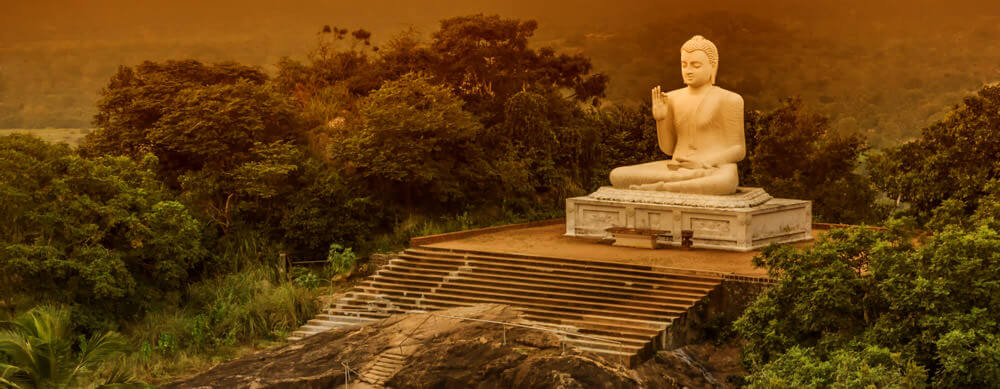
Travel Vaccines and Advice for Sri Lanka

Sri Lanka is a gorgeous tropical island full of exotic flora and fauna. Its mountainous inner country has stunning vistas and panoramic views.
Its popularity in tourism is due to its versatility. For the outdoor adventurer, Sri Lanka offers endless natural beauty. For the cultural tourist, there are delicious local dishes and historical sites to explore.
Do I Need Vaccines for Sri Lanka?
Yes, some vaccines are recommended or required for Sri Lanka. The National Travel Health Network and Centre and WHO recommend the following vaccinations for Sri Lanka: COVID-19 , hepatitis A , hepatitis B , typhoid , yellow fever , Japanese encephalitis , rabies , polio and tetanus .
See the bullets below to learn more about some of these key immunisations:
- COVID-19 – Airborne – Recommended for all travellers
- Hepatitis A – Food & Water – Recommended for most travellers to the region, especially if unvaccinated.
- Hepatitis B – Blood & Body Fluids – Recommended for travellers to most regions.
- Tetanus – Wounds or Breaks in Skin – Recommended for travelers to most regions, especially if not previously vaccinated.
- Typhoid – Food & Water – Jab lasts 3 years. Oral vaccine lasts 5 years, must be able to swallow pills. Oral doses must be kept in refrigerator.
- Yellow Fever – Mosquito – Required if travelling from a country with risk of yellow fever transmission.
- Japanese Encephalitis – Mosquito – Recommended depending on itinerary and activities. Recommended for extended travel, recurrent travellers and travel to rural areas. Throughout country, except mountainous regions. Peaks with monsoon rains.
- Rabies – Saliva of Infected Animals – High risk country. Vaccine recommended for long-stay travellers and those who may come in contact with animals.
- Polio – Food & Water – Required if arriving from a region with polio transmission. Considered a routine vaccination for most travel itineraries. Single adult booster recommended.
See the tables below for more information:
Mosquito-borne diseases, such as dengue fever and chikungunya, are present in Sri Lanka. Travellers should do their best to avoid mosquito bites to prevent these diseases.
In the capital city of Colombo, there are six hospitals, including four with emergency trauma care. But, outside of Colombo, medical care can be more difficult to get. You should bring any necessary special medication with you.
See our vaccinations page to learn more about these infections and vaccines. Ready to protect yourself? Book your travel health appointment today by calling or schedule online now .
Do I Need a Visa for Sri Lanka?
A visa is required for all travel to Sri Lanka. These can be applied for online via an Evisa. Duration is normally for a maximum period of 30 days. Passports must have at least six months validity. Proof of yellow fever vaccination may be required if you are travelling from a region where yellow fever is present.
Sources: Embassy of Sri Lanka and GOV.UK
What is the Climate Like in Sri Lanka?
Sri Lanka is a tropical country that generally has a warm and humid climate. The coastal areas are often warmer and more humid. Temperatures in the upland middle of the country can be a bit cooler, though still fairly warm.
Sri Lanka experiences monsoon seasons, but different regions are affected at different times. The northern and eastern regions of the country experience monsoons from October to January. The southern and western areas are affected from May to September.
The best time to travel to the country is during a dry season in the area you plan to visit. Because monsoon seasons differ in different areas, Sri Lanka can be visited year-round depending on where you plan to stay.
How Safe is Sri Lanka?
Travelling to Sri Lanka entails some safety risks. Crime in the country is common. Although most violent crime is not directed at foreigners, reports of assault and harassment are increasing. Travel in pairs or groups whenever possible to reduce the likelihood of harassment. Petty crime is also common, and travellers should always be aware of their belongings.
Protests and demonstrations are common in Sri Lanka, especially in Colombo. While most protests began peacefully, violence is possible. The best course is to avoid demonstrations and other large gatherings of people.
The northern areas of Sri Lanka have a military presence and un-exploded landmines. When travelling in the north, stay on main, heavily travelled roads. Do not wander through forests or fields, and avoid any areas roped off for clearing landmines.
Meeting Elephants in Udawalawe National Park
A few hours’ drive upcountry from the southern coast lies the Udawalawe National Park. This sanctuary for wild animals was established in 1972. This park is a haven for dozens of different species, including the Sri Lankan elephant.
The Sri Lankan elephant, one of three subspecies of the Asian elephant, is an endangered elephant native to Sri Lanka. Visitors to the Udawalawe National Park have a chance to see this rare and beautiful animal up close. If you visit the park’s Elephant Orphanage, you may even be able to assist with feeding or bathing one.
Many tour operators offer half-day or full-day safaris. Accommodation are available within the park itself for easy access.
What Should I Pack for Sri Lanka?
For the best experience in Sri Lanka, you should pack the following:
- Lightweight, light-colored cotton clothing is best to avoid mosquitoes and heat. If you’re visiting temples, you should also bring modest attire.
- Warm layers for travel into the colder highlands in the middle of the country.
- Mosquito repellent for extra protection against insects, which can be hard to find in much of Sri Lanka.
- Sun cream to guard your skin against the strong sun.
Embassy of the United Kingdom in Sri Lanka
If you are in Sri Lanka and have an emergency (for example, been attacked, arrested or someone has died) contact the nearest consular services. Contact the embassy before arrival if you have additional questions on entry requirements, safety concerns or are in need of assistance.
British High Commission in Sri Lanka 389, Bauddhaloka Mw, Colombo 7 Sri Lanka Telephone: +94 11 5390639 Emergency Phone: +94 11 5390639 Fax: +94 11 5390694 Contact Form: Click Here
Ready to start your next journey? Ring us up at or book online now !
On This Page: Do I Need Vaccines for Sri Lanka? Do I Need a Visa for Sri Lanka? What is the Climate Like in Sri Lanka? How Safe is Sri Lanka? Meeting Elephants in Udawalawe National Park What Should I Pack for Sri Lanka? Embassy of the United Kingdom in Sri Lanka

- Privacy Policy
- Automatic Data Collection Statement
Cookies on GOV.UK
We use some essential cookies to make this website work.
We’d like to set additional cookies to understand how you use GOV.UK, remember your settings and improve government services.
We also use cookies set by other sites to help us deliver content from their services.
You have accepted additional cookies. You can change your cookie settings at any time.
You have rejected additional cookies. You can change your cookie settings at any time.
- Passports, travel and living abroad
- Travel abroad
- Foreign travel advice
Warnings and insurance
The Foreign, Commonwealth & Development Office ( FCDO ) provides advice about risks of travel to help British nationals make informed decisions. Find out more about FCDO travel advice .
Before you travel
No travel can be guaranteed safe. Read all the advice in this guide as well as support for British nationals abroad which includes:
- advice on preparing for travel abroad and reducing risks
- information for women, LGBT+ and disabled travellers
Follow and contact FCDO travel on Twitter , Facebook and Instagram . You can also sign up to get email notifications when this advice is updated.
Travel insurance
If you choose to travel, research your destinations and get appropriate travel insurance . Insurance should cover your itinerary, planned activities and expenses in an emergency.
Related content
Is this page useful.
- Yes this page is useful
- No this page is not useful
Help us improve GOV.UK
Don’t include personal or financial information like your National Insurance number or credit card details.
To help us improve GOV.UK, we’d like to know more about your visit today. We’ll send you a link to a feedback form. It will take only 2 minutes to fill in. Don’t worry we won’t send you spam or share your email address with anyone.
- Travel Health Sri Lanka
Book your individual trip , stress-free with local travel experts
- roughguides.com
- Travel guide
- Itineraries
- Local Experts
- Travel Advice
- Accommodation
Plan your tailor-made trip with a local expert
Book securely with money-back guarantee
Travel stress-free with local assistance and 24/7 support
Nerida Lowndes
The direct communication with local expert while organizing the itinerary was easy to plan our trip to Sri Lanka. Always backed up with Rough Guides manage...
More travel information for Sri Lanka
From travel safety to visa requirements, discover the best tips for traveling to Sri Lanka
- Crime and personal safety tips Sri Lanka
- Culture and Etiquette in Sri Lanka
- Eating and drinking in Sri Lanka
- How to get to Sri Lanka
- Getting around Sri Lanka: Transportation Tips
- Sports and Outdoor activities in Sri Lanka
- Travel Tips Sri Lanka for planning and on the go
- Best time to visit Sri Lanka
Sri Lanka is less challenging from a health point of view than many other tropical countries: standards of hygiene are reasonable, medical care is of a decent standard and even malaria has now been eliminated. Nevertheless, the island does play host to the usual gamut of tropical diseases, and it’s important to make sure you protect yourself against serious illness.
You should start planning the health aspect of your trip well in advance of departure, especially if you’re having vaccines for things like rabies or Japanese encephalitis, which need to be administered over the course of a month. Vaccinations and medical advice are available from your doctor or – more conveniently but expensively – a specialist travel clinic. It’s also crucial to have adequate medical insurance.
Ensure that you’re up to date with the following standard vaccinations: diphtheria, tetanus, and hepatitis A. Other jabs you might consider are tuberculosis, meningitis and typhoid.
The best way to avoid falling ill is to look after yourself. Eat properly, make sure you get enough sleep and don’t try to cram too much strenuous activity into your holiday, especially in the first few days before you’ve acclimatized to the sun, water and food, and while you’re probably still suffering jetlag. Luckily, standards of medical care in Sri Lanka are good. Most doctors speak English and a significant number have trained in Europe, North America or Australia. All large towns have a hospital, and you’ll also find private medical clinics in Colombo. If you pay for treatment, remember to get receipts so that you can claim on your insurance policy. All larger towns have well-appointed pharmacies (signed by a red cross on a white circle) and can usually produce an English-speaking pharmacist. If stuck, any reputable hotel or guesthouse should be able to put you in touch with a local English-speaking doctor.

Water and food
Avoid drinking tap water in Sri Lanka. Although it’s generally chlorinated and safe to drink, the unfamiliar micro-organisms it contains (compared with what you’re used to at home) can easily precipitate a stomach upset. Also avoid ice, unless you’re sure that it’s been made with boiled or purified water. Mineral water is widely available, although always check that the seal hasn’t been broken – it’s not unknown for bottles to be refilled with tap water. Whatever precautions you take, however, you’re still likely to come into contact with local water at various points – your eating utensils will be washed in it, and it will probably be used without your knowledge in things like fruit juices – so it’s not worth getting paranoid about.
Though Sri Lankan standards of food hygiene are reasonable, it still pays to be careful, and the old travellers’ adage usually applies: if you can’t cook, boil or peel something, don’t eat it (although if you can’t peel something, you can always wash it thoroughly in purified water). Stick to hot food that has been freshly prepared. Avoid salads and anything which looks like it has been sitting uncovered for a while; short eats (see Vegetarian food in Sri Lanka) are particularly likely to be old and to have been poked by many fingers. The busier the establishment, the less probability that the food’s been sitting around all day. Obviously you’ll need to use your discretion: the buffet at a five-star hotel has more chance of being OK than a local café’s tureen of curry, which has been keeping the flies fat since dawn. Finally, remember that refrigerators stop working during power cuts, so unless you’re eating at a place with its own generator, avoid any food (including meat and ice cream) that might have been unfrozen and then refrozen.
Diarrhoea, dysentery and giardiasis
Diarrhoea remains the most common complaint amongst tourists visiting Sri Lanka. It can have many causes, including serious diseases like typhoid or cholera, but in the vast majority of cases diarrhoea is a result of contaminated food or drink and will pass naturally in a few days. Such diarrhoea is also often accompanied by cramps, nausea and vomiting, and fever in more severe cases.
You should seek medical advice if diarrhoea continues for more than five days or if there is blood mixed up in the faeces, in which case you could be suffering from giardiasis or amoebic dysentery. With giardiasis you may suffer stomach cramps, nausea and a bloated stomach. In amoebic dysentery, diarrhoea is severe, with bloody stools and fever. If any of the above symptoms apply, see a doctor.
One of the biggest problems with diarrhoea, particularly in a hot country like Sri Lanka, is dehydration; it’s vital you keep topped up with fluids – aim for about four litres every 24 hours. If you’re having more than five bouts of diarrhoea a day or are unable to eat, take oral rehydration salts to replace lost salt and minerals. These can be bought ready-prepared in sachets from pharmacies and camping shops. Alternatively, you can make your own by mixing eight teaspoons of sugar and half a teaspoon of salt in a litre of purified water.
Coconut water is a good alternative, especially if you add a pinch of salt. Children with diarrhoea dehydrate much more quickly than adults, and it’s even more vital to keep them hydrated. If you have to go on a long journey where you won’t have access to a toilet, you can temporarily bung yourself up with a blocking drug like lomotil or loperamide, though these simply suppress symptoms and have no curative value. Whilst recovering, stick to bland foods (rice and yoghurt are traditionally recommended, and bananas help replace lost potassium) and get plenty of rest – this is not the moment to go rushing up Adam’s Peak.
Sri Lanka was officially declared free of malaria by the World Health Organization (WHO) in 2016 after over three years without a single incidence of the disease being reported – a remarkable achievement. There’s no guarantee, of course, that the disease won’t reappear, although your doctor is unlikely to recommend you take anti-malarials at present.
Dengue fever
The mosquito-borne disease dengue fever, by contrast, remains a genuine concern. Dengue is particularly common in Colombo and along the west coast, with regular outbreaks following the southwest monsoon in October/November (one particular violent epidemic in the first half of 2017 saw 80,000 cases reported, with 215 deaths). There are four subtypes of dengue fever, so unfortunately it’s possible to catch it more than once. The disease is typically characterized by the sudden onset of high fever accompanied by chills, headache, a skin rash and muscle or joint pains (usually affecting the limbs and back, hence dengue fever’s nickname “break-bone fever”). The fever usually lasts three to seven days, while post-viral weakness, lethargy and sometimes depression can persist for anything up to several weeks. A rare but potentially fatal complication is dengue haemorrhagic fever (DHF), which is almost entirely confined to children under fifteen who have previously been infected with dengue fever.
There is no vaccine for dengue fever, which makes avoiding getting bitten in the first place all the more important, although unfortunately the mosquitoes that transmit dengue bite during the day, making them harder to guard against than malarial mosquitoes.
Avoiding bites
Regardless of the diseases mosquitoes may carry, you should avoid being bitten for the sheer fact that the bites are annoyingly itchy. The temptation is to scratch them, which can make them bleed. Although it’s difficult to avoid being bitten there are a few standard avoidance techniques you can use:
- wear light-coloured clothing with long sleeves
- use a repellent
- always sleep under a net
- burn a mosquito coil in your room or put one under the table while you eat.
- Pyrethroid tablets – an alternative to coils, which you place on a tray and put in a plug; the electricity heats the tray and vaporizes the Pyrethroid.
- Citronella oil (available from many chemists in Sri Lanka) is also thought to be good for repelling mosquitoes.
Japanese encephalitis
A third mosquito-borne disease is Japanese encephalitis (JE), a virus transmitted by mosquitoes which bite at night. It’s particularly associated with rural areas, as the virus lives in wading birds, pigs and flooded rice fields. JE is most prevalent following periods of heavy rainfall resulting in large areas of stagnant water.
JE is an extremely dangerous disease, with mortality rates of up to forty percent (though tourists are only rarely affected). As with dengue fever, you won’t contract JE if you don’t get bitten. Symptoms include drowsiness, sensitivity to light and confusion. An effective vaccine exists for JE (three shots administered over 28 days), though the standard advice is that it’s only worth considering if you’re travelling in high-risk areas during the monsoon for a period of over a month, and especially if you’ll be spending a lot of time in the country and/or camping out a lot.
The potential health risks associated with the sun are easily underestimated – especially since a desire to soak up the rays is often a major reason to come to Sri Lanka in the first place. Sunscreen should always be applied to exposed skin when outdoors; young children are particularly vulnerable to burns and should be kept out of the sun at all times. Older kids should wear the highest factor sunblock and a hat. For all ages, eyes also need to be protected by proper sunglasses. If you do get sunburnt, take plenty of warm (not cold) showers, apply calamine lotion or aloe vera gel, and drink lots of water.
A common but minor irritant is prickly heat, usually afflicting newly arrived visitors. It’s caused by excessive perspiration trapped under the skin, producing an itchy rash. Keep cool (a/c is good), shower frequently, use talcum powder on the affected skin and wear loose (ideally cotton) clothing. At its worst, prolonged exposure to the sun and dehydration can lead to heatstroke, a serious and potentially life-threatening condition. Symptoms are a lack of sweat, high temperature, severe headaches, lack of coordination and confusion. If untreated, heatstroke can lead to potentially fatal convulsions and delirium. If you’re suffering from heatstroke, get out of the sun, get into a tepid shower and drink plenty of water.
Hepatitis is an inflammation of the liver. The disease exists in various forms, though with a shared range of symptoms, typically jaundiced skin, yellowing of the whites of the eyes and a general range of flu-like symptoms. Hepatitis A and hepatitis E are spread by contaminated food and water. If you become infected, there’s little you can do except rest – unfortunately, it can take a couple of weeks or more to shake off the effects. The much more serious hepatitis B can result in long-term liver damage and liver cancer. Like the HIV virus, it’s spread via infected blood or body fluids, most commonly through sex or needle sharing. Hepatitis C and D are similar.
You can (and should) be vaccinated against hepatitis A. The hepatitis B vaccine is usually only recommended to those at especially high risk, such as health-care workers. There are no vaccines for other types of hepatitis.
Rabies, an animal disease transmitted to humans by bites, scratches or licking is usually associated with dogs, but can also be transmitted by cats, monkeys, bats or any other warm-blooded animal. Rabies, once symptoms have developed, is fatal. You are at risk if you suffer a bite that draws blood or breaks the skin, or if you are licked by an animal on an open wound. Bites to the face, neck and fingertips are particularly dangerous.
Fortunately, a safe and effective vaccine exists (three shots over 28 days), usually only recommended in Sri Lanka for long-stay visitors or those likely to be in close contact with animals.
Regardless of whether you’ve been vaccinated or not, if you’re bitten or scratched (or licked on an open wound) by an animal, clean the wound thoroughly with disinfectant as soon as possible. Iodine is ideal, but alcohol or even soap and water are better than nothing. If you’ve already been vaccinated, you’ll need two booster shots three days apart. If you haven’t been vaccinated, you will need to be given five shots of the rabies vaccine over 28 days (the first must be administered as soon as possible after you’ve been bitten), along with a single injection of rabies antibody serum.
Other diseases
Typhoid is a gut infection caused by contaminated water or food, and which leads to a high fever and diarrhoea. Oral and injected vaccines are available and usually recommended. A vaccination against meningitis is also available. This cerebral virus, transmitted by airborne bacteria, can be fatal. Symptoms include a severe headache, fever, a stiff neck and a stomach rash. If you think you have it, seek medical attention immediately. Sri Lanka has experienced occasional outbreaks of cholera, although this typically occurs in epidemics in areas of poor sanitation, and almost never affects tourists.
Initial symptoms of tetanus (“lockjaw”) can be discomfort in swallowing and stiffness in the jaw and neck, followed by convulsions – potentially fatal. The vaccination is a standard childhood jab in developed countries. “Booster” vaccinations are sometimes recommended for travellers to Asia.
Typhus is spread by the bites of ticks, lice and mites. Symptoms include fever, headache and muscle pains, followed after a few days by a rash, while the bite itself often develops into a painful sore. A shot of antibiotics will shift it.
STDs, HIV and AIDS
Sri Lanka has relatively few reported HIV and AIDS cases, although the obvious warnings and precautions apply.
Animals and insects
Leeches are common after rain in Sinharaja, Adam’s Peak and elsewhere in the hills. They’re difficult to avoid, attaching themselves to your shoes and climbing up your leg until they find flesh, and are quite capable of burrowing through a pair of socks. Once latched on, leeches will suck your blood until sated, after which they drop off of their own accord – perfectly painless, but not terribly pleasant. You can make leeches drop off harmlessly with the end of a lighted cigarette or the flame from a lighter, or by putting salt on them. Don’t pull them off, however, or bits of leech might break off and become embedded in your flesh, increasing the risk of the bite becoming infected.
Sri Lanka has the dubious distinction of having one of the highest number of snakebite fatalities, per capita, of any country in the world, and any form of bite should be treated as quickly as possible. The island boasts five species of poisonous snake, all relatively common, especially in northern dry zones; they include the cobra and the extremely dangerous Russell’s viper. Avoid wandering through heavy undergrowth in bare feet and flipflops; wear proper shoes or boots, socks and long trousers.
If bitten, you should ideally lie down in a safe place while medical help is summoned, remaining as still as possible to slow the spread of venom and removing any shoes/jewellery/watches near the bite (but do not apply a tourniquet). Try to note the appearance of the snake if at all possible in order to identify it so that the correct anti-venom can be administered.
Marine hazards
Besides the risks of drowning, swimmers are also at a small potential risk of marine stings. Jellyfish are common, and some can inflict painful stings; coral scratches and cuts can also be painful (although more of a problem for the coral itself, which dies on contact). Occasionally people develop quasi-allergic reactions to stings; if you start to wheeze or swell up around the face, go to hospital immediately.
The other thing you need to think about is how clean the water is: beaches in the vicinity of town centres are obviously prone to pollution. In addition, parts of some beaches are filthy. Look out for broken glass, fishing hooks, syringes and other rubbish; dog faeces is also common. If you cut your foot, disinfect it immediately and seek medical advice, since you may need a tetanus booster and/or a hepatitis B vaccine.
The Rough Guides to Sri Lanka and related travel guides
In-depth, easy-to-use travel guides filled with expert advice.

Travel advice for Sri Lanka
Find even more inspiration here.

Ready to travel and discover Sri Lanka?
Get support from our local experts for stress-free planning & worry-free travels.
- Where to stay
- Travel advice

Before travelling. Requirements.
If you’re planning a trip to Sri Lanka, it’s important to know the travel requirements before you go. Here’s a comprehensive guide to help you prepare for your journey:
COVID-19 Requirements
- Visa Requirements
- Health Insurance
Culture and Etiquette
In December 2022, the Government of Sri Lanka announced that travellers are no longer required to produce COVID-19 vaccination certificates on arrival in Sri Lanka. Pre-departure COVID-19 tests are also no longer required before arrival.
On 17 June, the Government of Sri Lanka announced that COVID-19 travel insurance is no longer mandatory for all visitors. However, it is important to ensure you take out comprehensive travel insurance before you travel abroad.
Visa requirements
Passport validity.
If you are visiting Sri Lanka, your passport should be valid for 6 months from the date you arrive.
Check with your travel provider to make sure your passport and other travel documents meet their requirements.
All visitors are advised to apply online for an Electronic Travel Authorisation (ETA) to enter Sri Lanka. Further information on eligibility is available on the Department of Immigration and Emigration website .
Visitors can apply for an ETA on the ETA website .
On arrival visa facilities are available, however applying for an ETA before travel is advised for ease of travel and to prevent delays on arrival.
All visitors need to comply with the guidelines imposed for tourists by the Government of Sri Lanka.
Tourist visas are normally valid for 30 days. If you overstay your visa you could be fined or detained by the police.
Health insurance
It is highly recommended that you purchase travel insurance before you leave. Travel insurance can provide you with a wide range of coverage options that can help protect you financially in the event of unforeseen circumstances during your trip. This can include things like medical emergencies, trip cancellations, lost or stolen luggage, and more.
Sri Lanka is a beautiful and popular tourist destination, but like any other country, it is not immune to accidents and emergencies. Medical treatment abroad can be expensive no matter how rich your destination is, and having travel insurance can provide you with peace of mind knowing that you are covered in case of unexpected illness or injury.
Additionally, travel insurance can provide you with protection against trip cancellations or interruptions due to unforeseen circumstances such as severe weather or personal emergencies. By purchasing travel insurance, you can ensure that you are financially protected and can fully enjoy your trip to Sri Lanka without worry.
The currency used in Sri Lanka is the Sri Lankan rupee (LKR) . The rupee is divided into 100 cents.
You will get approximately 325 LKR for 1 USD, or 389 for 1 GBP . The exchange rate will vary da by day.
Foreign currency can be exchanged at banks and money changers in Sri Lanka. Many hotels and tourist destinations also offer currency exchange services, but these may not offer the best exchange rates. It is important to note that it is illegal to change money with unlicensed money changers, and doing so can result in steep fines or even imprisonment.
Credit cards are widely accepted in larger establishments such as hotels, restaurants, and shops. Visa and MasterCard are the most commonly accepted cards, but it is always a good idea to carry some cash for smaller purchases and in case of emergencies.
ATMs are also widely available in Sri Lanka, especially in urban areas, and they accept most major debit and credit cards. However, it is always advisable to inform your bank of your travel plans before departing to ensure that your cards will work abroad and to avoid any unexpected issues.
In Sri Lanka, etiquette plays a significant role in their daily lives. Sri Lankans are known for their warm hospitality and politeness, so it’s essential to follow their customs and traditions to show respect to their culture. One of the essential etiquettes is the dress code. Sri Lankans have conservative values, and it’s advisable to dress modestly when visiting religious sites or attending formal events. Shorts and sleeveless tops are not recommended in these places.
Another etiquette in Sri Lanka is the greeting. It’s customary to greet people with a smile and a slight bow of the head. Handshakes are acceptable, but it’s better to wait for the other person to initiate it. When addressing people, it’s polite to use their title and surname, especially in formal settings. It’s also customary to use honorifics such as “sir” or “madam” when speaking to older people or those in positions of authority.
In Sri Lanka, it’s important to show respect to elders and those in authority. It’s customary to stand up when an elder or a person in authority enters the room as a sign of respect. When eating, it’s important to use the right hand to handle food as the left hand is considered unclean. Additionally, it’s considered impolite to point your feet towards someone as it’s seen as a sign of disrespect. These etiquettes are essential in Sri Lanka, and it’s important to observe them to show respect to the local culture.
Passport Sri Lankan rupee (LKR) ETA travel authorization USD, GBP or EUR cash for exchange
Sri Lanka. The Amazing.

Our team consists of experienced travel consultants, tour guides, and customer support specialists who have extensive knowledge about Sri Lanka’s culture, history, and tourism industry. We believe in providing our clients with a unique travel experience that is tailored to their specific needs and preferences. We offer a range of travel services, including customized tour packages, hotel bookings, transportation arrangements, and local experiences.
We understand that traveling can be overwhelming, especially when visiting a foreign country. That is why we provide 24/7 customer support to our clients, ensuring that they have a smooth and stress-free travel experience. Our team is always available to answer any questions or concerns our clients may have during their stay in Sri Lanka.
At visitlk.com, we are passionate about showcasing the beauty and diversity of Sri Lanka. Whether you are a solo traveler, a group of friends, or a family, we are here to make your journey to Sri Lanka unforgettable. Join us on a journey of discovery and exploration in this magical island paradise.
Useful tips
Our Partners
Terms & Conditions
Privacy Policy
Cookies policy
- COUNTRY INFORMATION
- LATEST NEWS
- OUTBREAK SURVEILLANCE
- TOPICS IN BRIEF
- FACTSHEETS & RESOURCES
- WORLD OVERVIEW
Welcome to TravelHealthPro
Find travel health advice for destinations worldwide and a wealth of useful resources for travellers and health professionals providing travel health services in the UK. See our introduction to TravelHealthPro video here.

Latest News
Icc men's t20 cricket world cup 2024.
Tournament in June 2024 will be co-hosted in the West Indies and the USA

Travelling to Germany for Euro 2024?
Travel health advice for fans going to the 2024 Euros

Dengue reminder
Dengue is a viral infection transmitted by mosquitoes found in tropical and sub-tropical climates, including parts of Europe

Global risk of measles: travel reminder
All travellers are advised to be up to date with measles vaccination

Travelling for Carnival
Follow our advice for a safe and healthy trip

Japanese encephalitis vaccine out of stock: advice for travellers and health professionals
Important advice on Japanese encephalitis vaccine shortage for health professionals

Cholera: worldwide risk reminder
A reminder of the risks of cholera worldwide and the importance of good food, water and personal hygiene for all travellers

Management and reporting of adverse events
Information on management and reporting of suspected adverse events or inadvertent administration following YF vaccination
Check the recommendations for your destination
- Featured News and Factsheets
- Latest Outbreaks

United Kingdom Health Security Agency publishes 2022 and 2023 malaria cases in returned travellers in England, Wales and Northern Ireland
Malaria risk reminder for travellers and health professionals as UK Health Security Agency confirm 2022 and 2023 imported UK malaria cases

‘Getting to grips with tick-borne encephalitis’ webinar video available
The recording of the tick-borne encephalitis webinar on 28 March 2024 now added to TravelHealthPro

Polio: Public Health Emergency of International Concern
An update on the polio Public Health Emergency of International Concern (PHEIC)

Yellow fever update
Yellow fever cases continue to be reported in Africa and South America
Qdenga® dengue vaccine guidance
Joint Committee on Vaccination and Immunisation (JCVI) deliberations on Qdenga® vaccine now available
Yellow fever pre-vaccination checklist updated
Updates to the pre-vaccination checklist have been made in line with the new 'green book' yellow fever chapter
Nipah virus; information for travellers and health professionals
Information on risks and prevention for travellers and health professionals
Cholera vaccine shortage: advice for health professionals
Cholera cases increase worldwide, with shortages of cholera vaccine reported
Cholera in Brazil
On 19 April 2024, the first locally acquired cholera ( Vibrio cholerae O1 Ogawa) case in Brazil since 2005 was confirmed. A resident of Salvador, presented with symptoms in March 2024 with no history of travel to risk countries or contact with suspected or confirmed cases. Cholera is rare in travellers, a vaccine is available for those who are at increased risk.
Lassa fever in Nigeria
As of 22 April 2024, 5,669 suspected, 832 confirmed and 17 probable cases, including 152 deaths, have been reported. In total for 2024, 27 states have recorded at least 1 confirmed case across 126 Local Government Areas.
Shigellosis in Belgium, Germany, Ireland & Netherlands
On 9 April 2024, 31 cases of extensively drug-resistant (XDR) Shigella sonnei infections were reported in Belgium since January 2024. On 12 April 2024, cases were also reported from Germany (2), Ireland (2), and the Netherlands (1). All of the cases had links to a music festival in Belgium.
Botox reaction in USA
As of 12 April 2024, a total of 19 people from nine states have reported harmful reactions after receiving botulinum toxin injections from unlicensed or untrained individuals or in non-healthcare settings, such as homes and spas. Nine people have been admitted to hospital.
Cholera in Comoros
As of 14 April 2024, a total of 1,484 cholera cases, with 38 deaths (representing a 2.5% case mortality rate) have been reported since this cholera outbreak was declared on 2 February 2024. The three islands have reported cases, with most from Anjouan island.
Rabies in Timor-Leste
As of 22 March 2024, one fatal human case of rabies was confirmed in Pasabe Subregion, Oecusse. This is the first confirmed human case of rabies in Timor-Leste.
cVDPV2 in Liberia
As of 8 April 2024, circulating vaccine-derived poliovirus type 2 (cVDPV2) has been detected in an environmental sample in this country.
cVDPV2 in Senegal
Cvdpv2 in sierra leone, influenza a(h9n2) in vietnam.
As of 7 April 2024, the Vietnam Department of Information and Communications reported a confirmed human case of avian influenza A(H9N2) infection. This is the first confirmed human case of avian influenza A(H9N2) reported in Vietnam. To date, no further cases have been detected among close contacts.
Advice Line for health professionals
020 7383 7474 (local call rate).
Monday to Friday 09:00 – 11:00
Monday 13:00 – 14:00 Tuesday 13:00 – 15:30 Wednesday 14:30 – 17:00 Thursday 13:00 – 15:30 Friday 13:00 – 14:00
Subscribe to our News Alerts and Newsletter
Enter your email address to subscribe and manage the news you receive from us.
Preferences
The Yellow Fever Zone

Get TravelHealthPro on your site

A short introduction to using the TravelHealthPro website for travellers and health professionals .
FEEDBACK SURVEY
Personal information:, successfully submitted .
UK Health Security Agency
Hospital for Tropical Diseases
Liverpool School of Tropical Medicine
London School of Hygiene and Tropical Medicine
University College London Hospitals NHS Foundation Trust
Protecting the health of the British traveller
- About NaTHNaC
Choose from our websites and some key resources below to learn more.
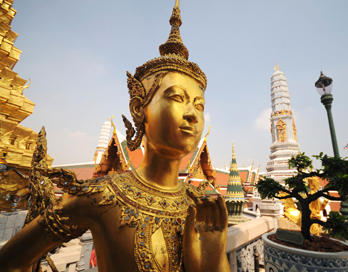
TravelHealthPro
Travel health information aimed at healthcare professionals advising travellers, and people travelling overseas from the UK including news, factsheets, outbreak reports and country information.
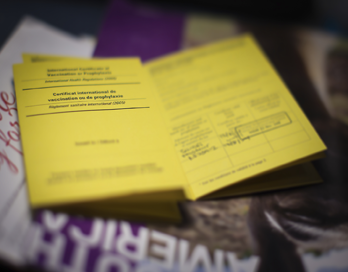
Yellow Fever Zone
Clinical and administrative resources for healthcare professionals and other staff running or managing a Yellow Fever Vaccination Centre (YFVC). Also find out how to apply to become a YFVC.

Telephone advice line for health professionals
Health professionals advising travellers with complex itineraries or specialist health needs can call weekdays to speak to one of NaTHNaC’s specialist travel health nurses. Find opening hours, contact number and more details.

NaTHNaC Training Portal
Health professionals can access booking information for online and classroom training in yellow fever vaccination, get guidance on how to gain experience in travel medicine and view a listing of forthcoming travel health courses.
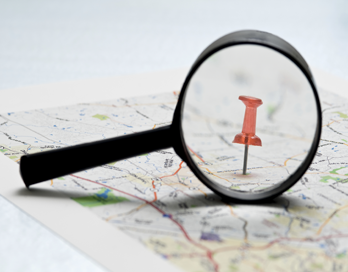
Yellow fever vaccination centre search
Search by location or postcode to find a centre offering yellow fever vaccination in England, Wales or Northern Ireland. YFVCs generally also offer a wider travel health service. Search also Scotland, Isle of Man and the Channel Islands.

Outbreak Surveillance
Information on disease outbreaks and incidents worldwide from a wide variety of sources, and can be used along with the Country Information section of TravelHealthPro.
We were set up by the Department of Health in 2002 with the broad aim of Protecting the Health of British Travellers . We seek to improve the quality of travel health advice given by GP practices, travel clinics, pharmacies and other healthcare providers, and provide up to date and reliable information for the international traveller, travel industry and national government.
We are commissioned by UK Health Security Agency and hosted by University College London Hospitals NHS Foundation Trust (UCLH) ; we also work in partnership with our other network founders Liverpool School of Tropical Medicine (LSTM) , London School of Hygiene and Tropical Medicine (LSHTM) and the Hospital for Tropical Diseases (HTD) .
Health professionals and travellers seeking health information ahead of travel should visit our website: travelhealthpro.org.uk .
Our main goals
- To develop national guidance on travel health for health professionals advising the public.
- To advise on specific situations and circumstances that could affect the health of British travellers.
- To identify and report on disease outbreaks and other health hazards worldwide.
- To share our information and expertise widely.
- To keep a register of, monitor and train Yellow Fever Vaccination Centres (YFVCs) in England, Wales and Northern Ireland.
- To collaborate with organisations, particularly in the travel and insurance industries, and in the NHS and government, which share our aim of Protecting the Health of British Travellers.
- To train health professionals to provide best quality, evidence-based trave health advice and services.
- To initiate research, collect and analyse data to enable us to achieve our goals.
Annual reports
- NaTHNaC Annual report 2022-2023
- NaTHNaC Annual report 2021-2022
- NaTHNaC Annual report 2020-2021
- NaTHNaC Annual report 2019-2020
- NaTHNaC Annual report 2018-2019
Dr Dipti Patel OBE Director
Dr Vanessa Field Deputy Director
Administration Team
Masum Miah Operations Manager
Linda Pang YFVC Support
Sheena Ryan Business Support
Terence Corrigan Online Communications
Information
Sanch Kanagarajah Senior Information Analyst
Samia Richards-Zoubir Analyst for Travel Health
Dr Yasvita Gupta Intern Analyst for Travel Health
Clinical Team
Dr Lisa Ford (Liverpool) Clinical Advisor
Dr Catherine Smith Consultant
Dr Natalia Rodriguez-Valero Honorary Clinical Fellow
Dr Kirsten MacGregor Speciality Registrar
Hilary Simons (Liverpool) Senior Specialist Nurse (Travel Health)
Lynda Bramham Specialist Nurse (Travel Health)
Mary Gawthrop Specialist Nurse (Travel Health)
Alexandra Stillwell Specialist Nurse (Travel Health)
Rose Tucker Specialist Nurse (Travel Health)
Rachael Fletcher Specialist Nurse (Travel Health)
NaTHNaC has offices in London and Liverpool.
Membership of the Technical Advisory Group
Dr Nick Beeching Clinical Director, Tropical & Infectious Disease Unit, Royal Liverpool Hospitals; Senior Lecturer in Infectious Diseases, Liverpool School of Tropical Medicine Dr Mike Brown Infection Division Clinical Director, University College London Hospitals (UCLH); Senior Lecturer in Infectious Diseases and Tropical Medicine, London School of Hygiene and Tropical Medicine Kevin Dyer Senior Business Development Manager, UK Health Security Agency Dr Vanessa Field Deputy Director, NaTHNaC Prof James G. Logan Head of Department of Disease Control, London School of Hygiene and Tropical Medicine Dr Nicky Longley Consultant Physician and Clinical Lead in Travel Medicine, Hospital for Tropical Diseases, University College London Hospitals Prof Dilys Morgan MBE Chair of NaTHNaC Technical Advisory Group Dr Dipti Patel OBE Director, NaTHNaC Prof Bertie Squire Professor of Tropical Medicine and Dean of Clinical Sciences and International Public Health at the Liverpool School of Tropical Medicine Dr Fiona Yung Divisional Manager Clinical Support Services, Pathology, Infection , Camden MSK, University College London Hospitals
Our partners
NaTHNaC was founded in 2002 by the Department of Health and is now commissioned by UK Health Security Agency. We work in partnership with our network founders.
UK HEALTH SECURITY AGENCY
THE HOSPITAL FOR TROPICAL DISEASES
LIVERPOOL SCHOOL OF TROPICAL MEDICINE
LONDON SCHOOL OF HYGIENE AND TROPICAL MEDICINE
UNIVERSITY COLLEGE LONDON HOSPITALS NHS FOUNDATION TRUST
Travel vaccination advice
If you're planning to travel outside the UK, you may need to be vaccinated against some of the serious diseases found in other parts of the world.
Vaccinations are available to protect you against infections such as yellow fever , typhoid and hepatitis A .
In the UK, the NHS routine immunisation (vaccination) schedule protects you against a number of diseases, but does not cover all of the infectious diseases found overseas.
When should I start thinking about the vaccines I need?
If possible, see the GP or a private travel clinic at least 6 to 8 weeks before you're due to travel.
Some vaccines need to be given well in advance to allow your body to develop immunity.
And some vaccines involve a number of doses spread over several weeks or months.
You may be more at risk of some diseases, for example, if you're:
- travelling in rural areas
- backpacking
- staying in hostels or camping
- on a long trip rather than a package holiday
If you have a pre-existing health problem, this may make you more at risk of infection or complications from a travel-related illness.
Which travel vaccines do I need?
You can find out which vaccinations are necessary or recommended for the areas you'll be visiting on these websites:
- Travel Health Pro
- NHS Fit for Travel
Some countries require proof of vaccination (for example, for polio or yellow fever vaccination), which must be documented on an International Certificate of Vaccination or Prophylaxis (ICVP) before you enter or when you leave a country.
Saudi Arabia requires proof of vaccination against certain types of meningitis for visitors arriving for the Hajj and Umrah pilgrimages.
Even if an ICVP is not required, it's still a good idea to take a record of the vaccinations you have had with you.
Find out more about the vaccines available for travellers abroad
Where do I get my travel vaccines?
First, phone or visit the GP practice or practice nurse to find out whether your existing UK vaccinations are up-to-date.
If you have any records of your vaccinations, let the GP know what you have had previously.
The GP or practice nurse may be able to give you general advice about travel vaccinations and travel health, such as protecting yourself from malaria.
They can give you any missing doses of your UK vaccines if you need them.
Not all travel vaccinations are available free on the NHS, even if they're recommended for travel to a certain area.
If the GP practice can give you the travel vaccines you need but they are not available on the NHS, ask for:
- written information on what vaccines are needed
- the cost of each dose or course
- any other charges you may have to pay, such as for some certificates of vaccination
You can also get travel vaccines from:
- private travel vaccination clinics
- pharmacies offering travel healthcare services
Which travel vaccines are free?
The following travel vaccines are available free on the NHS from your GP surgery:
- polio (given as a combined diphtheria/tetanus/polio jab )
- hepatitis A
These vaccines are free because they protect against diseases thought to represent the greatest risk to public health if they were brought into the country.
Which travel vaccines will I have to pay for?
You'll have to pay for travel vaccinations against:
- hepatitis B
- Japanese encephalitis
- tick-borne encephalitis
- tuberculosis (TB)
- yellow fever
Yellow fever vaccines are only available from designated centres .
The cost of travel vaccines that are not available on the NHS will vary, depending on the vaccine and number of doses you need.
It's worth considering this when budgeting for your trip.
Other things to consider
There are other things to consider when planning your travel vaccinations, including:
- your age and health – you may be more vulnerable to infection than others; some vaccines cannot be given to people with certain medical conditions
- working as an aid worker – you may come into contact with more diseases in a refugee camp or helping after a natural disaster
- working in a medical setting – a doctor, nurse or another healthcare worker may require additional vaccinations
- contact with animals – you may be more at risk of getting diseases spread by animals, such as rabies
If you're only travelling to countries in northern and central Europe, North America or Australia, you're unlikely to need any vaccinations.
But it's important to check that you're up-to-date with routine vaccinations available on the NHS.
Pregnancy and breastfeeding
Speak to a GP before having any vaccinations if:
- you're pregnant
- you think you might be pregnant
- you're breastfeeding
In many cases, it's unlikely a vaccine given while you're pregnant or breastfeeding will cause problems for the baby.
But the GP will be able to give you further advice about this.
People with immune deficiencies
For some people travelling overseas, vaccination against certain diseases may not be advised.
This may be the case if:
- you have a condition that affects your body's immune system, such as HIV or AIDS
- you're receiving treatment that affects your immune system, such as chemotherapy
- you have recently had a bone marrow or organ transplant
A GP can give you further advice about this.
Non-travel vaccines
As well as getting any travel vaccinations you need, it's also a good opportunity to make sure your other vaccinations are up-to-date and have booster vaccines if necessary.
Although many routine NHS vaccinations are given during childhood, you can have some of them (such as the MMR vaccine ) as an adult if you missed getting vaccinated as a child.
There are also some extra NHS vaccinations for people at higher risk of certain illnesses, such as the flu vaccine , the hepatitis B vaccine and the BCG vaccine for tuberculosis (TB) .
Your GP can advise you about any NHS vaccinations you might need.
Find out about NHS vaccinations and when to have them
Page last reviewed: 16 March 2023 Next review due: 16 March 2026
Vaccinations for Sri Lanka
- What Travel Vaccines Do I Need?
- Vaccinations for Asia
Information on this page is only intended as a guide to the travel vaccinations recommended for this country
Sri Lanka is a country in Asia. An island nation, it lies off the coast of India in the Indian Ocean.
For most travellers the recommended vaccinations vaccinations for Sri Lanka include: Hepatitis A
For people trekking in the countryside, staying for longer periods or for those at higher risk, recommended vaccinations for Sri Lanka might include: Hepatitis B , Japanese Encephalitis , Measles Mumps & Rubella , Rabies , Tetanus , Typhoid & Yellow Fever
There is a risk of Malaria in Sri Lanka, see below for advice
There is no risk of Yellow Fever in Sri Lanka, but there are Yellow Fever certificate entry requirements. See below for advice.
Vaccines Recommended to All Travellers to Sri Lanka
All travellers to all areas of this country are advised to have these vaccinations along with staying up to date with the routine vaccination schedule for the UK. Book a consultation for a full travel health risk assessment.
Diphtheria is a bacterial disease spread through close contact with infected persons. Vaccination against Diphtheria may be recommended
- 1 dose of Diphtheria is required
- Given any time before travel
Vaccines Recommended to Some Travellers to Sri Lanka
These vaccinations may be advised depending on the specific areas you are travelling to, your medical history and your itinary. Book a consultation for expert guidance on whether these vaccines are recommended for you.
Hepatitis B
Hepatitis B is viral disease that is spread through blood and bodily fluids. Vaccination against Hepatitis B may be recommended
- 3-4 doses of Hepatitis B are required
- 21 days apart with a further dose 1 year later for full protection
Japanese Encephalitis
Japanese Encephalitis is a disease spread through the bite of an infected mosquito, which can cause inflammation of the brain. Japanese Encephalitis is most common in parts of Asia. Vaccination against Japanese Encephalitis may be recommended
- 2 doses of Japanese Encephalitis are required
- Doses administered 28 days apart
Measles, Mumps & Rubella
Measles, Mumps & Rubella (MMR) are viral illnesses spread by the respiratory route; coughing, sneezing etc. They are present globally in all countries of the world and are therefore MMR is a risk to all travellers.
- 2 doses of MMR are required
- Doses administered 1 month apart
Rabies is endemic throughout most of the world. The Rabies virus is carried in the saliva of infected mammals. Rabies affects the nervous system and, once symptoms develop, death is inevitable – even with good medical care.
- 3 doses of Rabies are required
- Doses administered 21-28 days apart
Tetanus is a disease caused by bacteria present in soil everywhere in the world. Tetanus causes painful muscle spasms and can lead to death. Vaccination against Tetanus is recommended to all travellers.
- 1 dose of Tetanus is required
Typhoid is spread through contaminated food and water. Typhoid is common in areas with poor standards in food hygiene & preparation, and where suitable treatment of sewage is lacking. There are several types of Typhoid vaccination available.
- 1-3 doses of Typhoid are required
- Doses administered once or over 4 days
- Given 7-14 days before travel
Yellow Fever
Yellow Fever is endemic in parts of Sub-Saharan Africa and South America. Yellow Fever is spread by infected mosquitoes normally most active from sunrise to sunset. Many countries, where the disease is not endemic, require a valid certificate of vaccination against Yellow Fever before you can enter as a traveller.
- 1 dose of Yellow Fever is required
- Yellow Fever certificate of vaccination is valid for life
Malaria Risk in Sri Lanka
Malaria is present in Sri Lanka, but is low risk .
There is no vaccination against Malaria , you may need to take Antimalarial tablets there are some risk areas. We recommend you have a consultation with an expert Nomad nurse to talk through your malaria tablet recommendations.
Yellow Fever in Sri Lanka
There is no risk of Yellow Fever in Sri Lanka.
Yellow fever vaccination certificate is required for travellers over 9 months of age arriving from countries with risk of yellow fever transmission and for travellers having transited more than 12 hours through the airport of a country with risk of yellow fever transmission.
For details on Yellow Fever risk areas, click here (Source: fitfortravel )
Other Health Risks
Chikungunya in sri lanka.
There is a risk of Chikungunya virus in this country. Spread by mosquitos, Chikungunya virus is widespread across Africa, South-East Asia, the Indian sub-continent and the Philippines. Occasionally, the virus can be found in other countries where the mosquito that spreads Chikungunya can also be found. There is no vaccination against Chikungunya, it is important to protect yourself with bite avoidance products like DEET. For more information – click here .
High Altitude in Sri Lanka
There are some high altitude areas. Travellers should take care to avoid Acute Mountain Sickness (AMS) by taking time to acclimatise properly. AMS can affect anyone, regardless of age, gender, level of fitness or training. At high altitude, extra precautions should be taken against the harsh conditions, which can cause damaging ultraviolet and cold exposure. All Nomad Travel Health Nurses are trained to advise on AMS, and it may be appropriate for you to take certain medications that may help with acclimatisation. Book an appointment to discuss health issues related to altitude, based on your specific itinerary. For more information – click here .
Dengue Fever in Sri Lanka
There is a risk of Dengue Fever. It is spread by a species of mosquito called Aedes aegypti, otherwise known as the ‘tiger mosquito’ which mainly bites during the day. The illness is widespread throughout the tropics and subtropics, affecting over 100 countries with approximately 50 million cases globally a year. Currently most infections occur in SE Asia, South and Central America, Mexico, Africa, Indian sub-continent, Hawaii and the Pacific. There is currently no vaccination against Dengue Fever, it is therefore important to protect yourself during the day with bite avoidance products like DEET. For more information – click here .
Zika Virus in Sri Lanka
Zika is a viral infection transmitted by daytime biting mosquitoes. These mosquitoes bite an infected person and then spread the infection to others when they bite again. Pregnant women are advised not to travel into Zika regions, and male partners must use condoms for 6 months after travel into affected areas to prevent sexual transmission of the disease to a pregnant partner. If planning pregnancy, female travellers should avoid getting pregnant for at least 8 weeks after being in a Zika region. Whereas men must avoid getting a woman pregnant for at least 6 months following travel into a Zika region as the virus can survive in sperm for much longer and can be sexually transmitted. For more information – click here .
Recommended Kit for Sri Lanka
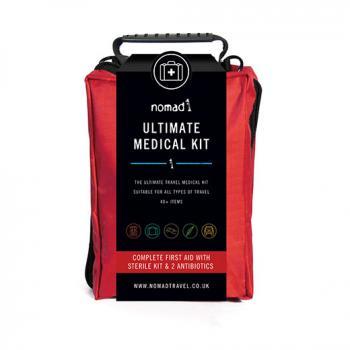
Ultimate Medical Kit
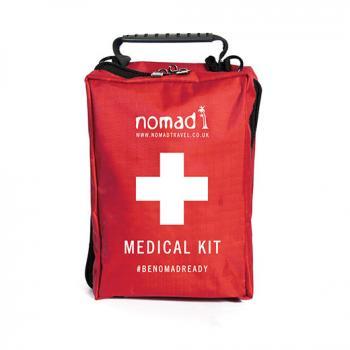
Worldwide Diarrhoea Kit
Sri lanka travel blogs.

Travel to Sri Lanka in 2022: What to Know

Malaria Tablets for Children

Safely Buy Malaria Tablets Online

Which malaria tablets should I take?
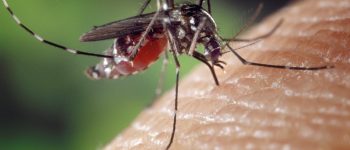
Malarone vs Atovquone/Proguanil: Whats the Difference?

Coping with Culture Shock

Why You Should Visit Sri Lanka in 2019

How to Quickly Beat Travellers Diarrhoea

Best Group Travel Destinations

How to Avoid Diarrhoea Abroad
We recommend you book a consultation with one of our specialist Travel Health Nurses to determine the exact vaccinations recommended for you based on a bespoke risk assessment that will take into account your itinerary, medical history, activities and length of travel, which are all risk factors affecting your immunisation recommendations. If you would like to book with us please call 01341 555 061 or click here. For the most up to date information, visit Fit For Travel and search for the countries you are travelling to.
- Afghanistan
- Philippines
- Saudi Arabia
- South Korea
- Turkmenistan
BECOME A NOMAD - SUBSCRIBE TODAY
Join the Nomad community for updates and expert insight
Search for...
- Day 2 & Day 8 Tests
- Lateral Flow Antigen Tests
- At-Home Self Tests
- In-Clinic Tests
- Find a Travel Clinic
- Find a Travel Store
We apologise for issues you may experience when placing orders on our site at the moment. We are working to resolve it as quickly as possible. If you are experiencing any difficulties placing orders please email [email protected] to place your order with the pharmacy directly. We will respond ASAP. Dismiss

IMAGES
VIDEO
COMMENTS
Altitude illness in Sri Lanka. There is a point of elevation in this country higher than 2,500 metres. Prevention. Travellers should spend a few days at an altitude below 3,000m. Where possible travellers should avoid travel from altitudes less than 1,200m to altitudes greater than 3,500m in a single day. Ascent above 3,000m should be gradual.
NaTHNaC - Country List - TravelHealthPro COUNTRY INFORMATION is a webpage that provides comprehensive and up-to-date information on travel health risks and recommendations for over 200 countries. Whether you are travelling to Peru, Bali, Romania, Uganda or any other destination, you can find useful factsheets, vaccine advice, malaria prevention tips, outbreak alerts and more on this webpage.
Find travel health advice for destinations worldwide and a wealth of useful resources for travellers and health professionals providing travel health services in the UK. See our introduction to TravelHealthPro video here. Latest News ICC Men's T20 Cricket World Cup 2024.
Some countries are reporting increased numbers of cases of the disease. Travelers to Asia and the Pacific Islands can protect themselves by preventing mosquito bites. Destination List: Cambodia, Indonesia, Laos, Malaysia, Singapore, Sri Lanka. Global Measles March 22, 2024 Many international destinations are reporting increased numbers of cases ...
At least 8 weeks before your trip check: the latest information on vaccinations and health risks in TravelHealthPro's Sri Lanka guide. where to get vaccines and whether you have to pay on the ...
To help you out, here are some of the things you need to know before traveling to Sri Lanka. 1. Apply for a visa in advance. As a first step, check the latest visa requirements for Sri Lanka. Most nationalities need an Electronic Travel Authorization (ETA) in advance of travel, but fortunately, they're not hard to get. 2.
Urgent medical advice should be sought after any animal bite, scratch or lick to broken skin, or bat bite, even after receiving pre-travel rabies vaccine. Tetanus : spread through contamination of cuts, burns and wounds with tetanus spores. Spores are found in soil worldwide. A total of 5 doses of tetanus vaccine are recommended for life in the UK.
In line with the latest Health guidelines issued by the Director General of Health Services with regard to the. "Quarantine measures for travellers arriving from overseas during the pandemic of COVID-19", please be mindful of the following requirements when travelling to Sri Lanka; Sri Lankan passport holders DO NOT REQUIRE a COVID-19 ...
We have developed a 3 minute video guide of TravelHealthPro. This short tour demonstrates how to find some of the key resources and features. TravelHealthPro contains lots of helpful information. In addition to specific advice for each country, you can find outbreak surveillance information, news items, and a range of articles with advice on ...
Check our Traveler Information Center for more information if you are a traveler with specific health needs, such as travelers who are pregnant, immune compromised, or traveling for a specific purpose like humanitarian aid work. Remember to pack extras of important health supplies in case of travel delays. Prescription medicines. Your prescriptions
Consult a health care professional or visit a travel health clinic preferably 6 weeks before you travel to get personalized health advice and recommendations. ... 2SLGBTQI+ travellers should carefully consider the risks of travelling to Sri Lanka. Travel and your sexual orientation, gender identity, gender expression and sex characteristics.
Sri Lanka Capital City : "Colombo (executive and judicial) and Sri Jayewardenepura Kotte (Colombo suburb; ... The information on these pages should be used to research health risks and to inform the pre-travel consultation. Due to COVID-19, travel advice is subject to rapid change. Countries may change entry requirements and close their borders ...
Specific. Advice. Travellers'. Diarrhea Kits. Available. Sri Lanka is a gorgeous tropical island full of exotic flora and fauna. Its mountainous inner country has stunning vistas and panoramic views. Its popularity in tourism is due to its versatility. For the outdoor adventurer, Sri Lanka offers endless natural beauty.
FCDO travel advice for Sri Lanka. Includes safety and security, insurance, entry requirements and legal differences. ... Health; Getting help; Subscriptions. Get email alerts Warnings and ...
Sri Lanka is less challenging from a health point of view than many other tropical countries: standards of hygiene are reasonable, medical care is of a decent standard and even malaria has now been eliminated. Nevertheless, the island does play host to the usual gamut of tropical diseases, and it ...
Find country-specific vaccine recommendations plus other important advice and tips to stay healthy abroad.
COVID-19 Requirements. In December 2022, the Government of Sri Lanka announced that travellers are no longer required to produce COVID-19 vaccination certificates on arrival in Sri Lanka. Pre-departure COVID-19 tests are also no longer required before arrival. On 17 June, the Government of Sri Lanka announced that COVID-19 travel insurance is ...
Shigellosis in Belgium, Germany, Ireland & Netherlands. On 9 April 2024, 31 cases of extensively drug-resistant (XDR) Shigella sonnei infections were reported in Belgium since January 2024. On 12 April 2024, cases were also reported from Germany (2), Ireland (2), and the Netherlands (1).
We were set up by the Department of Health in 2002 with the broad aim of Protecting the Health of British Travellers.We seek to improve the quality of travel health advice given by GP practices, travel clinics, pharmacies and other healthcare providers, and provide up to date and reliable information for the international traveller, travel industry and national government.
The GP or practice nurse may be able to give you general advice about travel vaccinations and travel health, such as protecting yourself from malaria. They can give you any missing doses of your UK vaccines if you need them. Not all travel vaccinations are available free on the NHS, even if they're recommended for travel to a certain area.
Vaccinations for Sri Lanka. For most travellers the recommended vaccinations vaccinations for Sri Lanka include: Hepatitis A. For people trekking in the countryside, staying for longer periods or for those at higher risk, recommended vaccinations for Sri Lanka might include: Hepatitis B , Japanese Encephalitis , Measles Mumps & Rubella , Rabies ...
Updated website designs are now live on TravelHealthPro. Our TravelHealthPro website designs have been refreshed to improve accessibility and to respond to stakeholder feedback. The Yellow Fever Zone, and our NaTHNaC launchpad to services websites will be updated soon. There are no major changes to the website functions.